Mar 2020 1st Edition
Mar 2020 1st Edition vuyelwan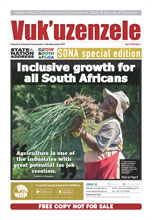
Translations
AgriPlanner grows farmers
AgriPlanner grows farmers UrsulaOnce an unemployed rural farmer, Nokwanda Nkqayi (64) is now one of thousands of women who have been empowered to become agri-entrepreneurs through the AgriPlanner Programme in Cape Town. 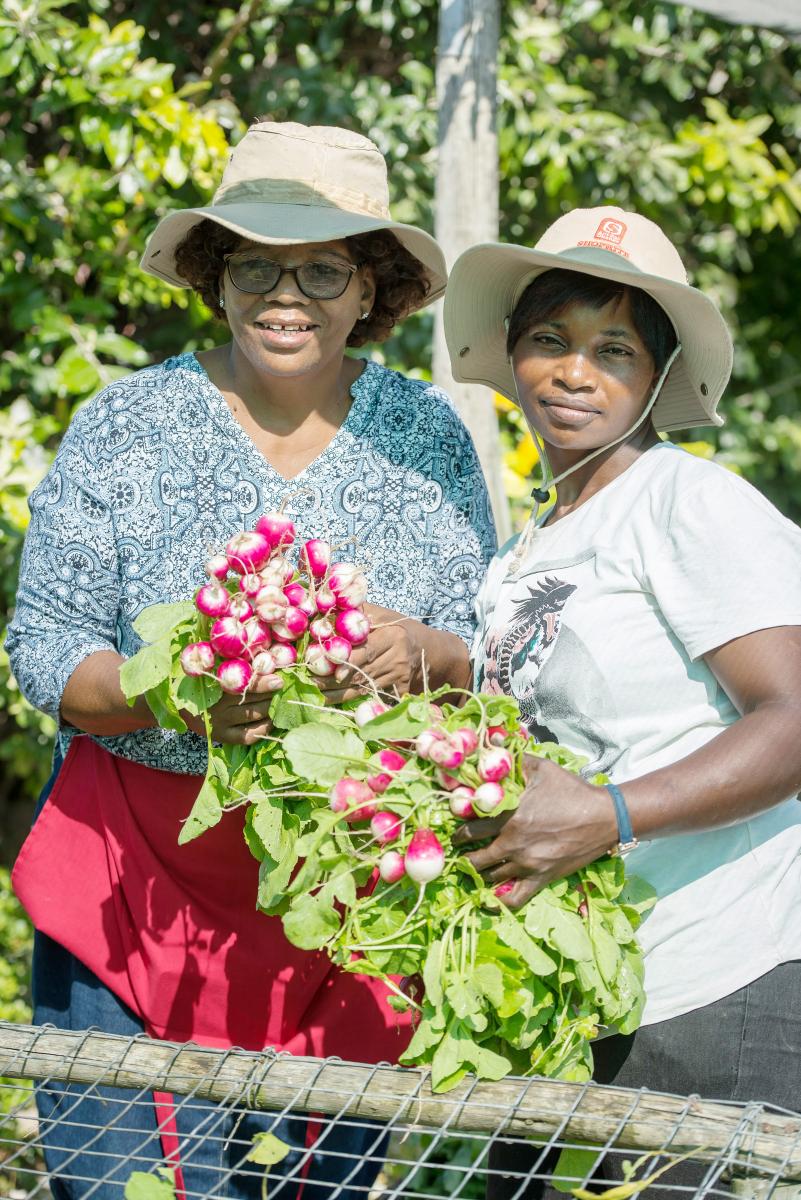
The programme is a joint initiative between the SA Institute for Entrepreneurship and Coronation Fund Managers, which has assisted over 5 000 emerging farmers, 65 percent of which are women. The programme falls under Coronation’s Growing Entrepreneurs initiative.
Nkqayi has been working at the Siyazama Community Food Garden in Khayelitsha since 2004. Prior to this, she and three other women and two men were unemployed and new to the city.
“The municipality gave us this land to farm and we received AgriPlanner training. Now we grow peppers, kale, cabbage, leeks, rocket, herbs and lots of other things,” she said.
The fully organic food garden supplies produce to hotels, restaurants, retailers and families in Cape Town, through a vegetable box ordering programme. Each farmer has gone from only farming to feed themselves and their families, to earning an average income of between R8 000 and R12 000 a month.
The AgriPlanner training equips participants with the knowledge and skills needed to become successful farmers.
“I am much healthier from eating these organic vegetables and getting exercise every day. It has also empowered me. I was unemployed, but now I have a variety of skills and a steady income. I was able to send my kids to school.
“I also take veggies to the poor, sick and elderly in the community, and five schools each have a patch of land here that the children farm with our help,” she said.
The Coronation Growing Entrepreneurs programme aligns with the United Nations Sustainable Development Goals and South Africa’s National Development Plan, to address food security, inequality, poverty and environmental sustainability.
“Farmers play a vital role in local communities, including creating jobs, adding to food security and benefiting the local economy,” said Coronation CEO Anton Pillay.
“Climate change and a lack of training and business support are some of the challenges they face. This is why we will continue to offer local food growers practical training and entrepreneurial support,” he added.
For more information about the programme, email info@entrepreneurship.co.za or call 021 447 2023
Agriculture at the centre of job creation
Agriculture at the centre of job creation UrsulaAgriculture is one of the industries with the greatest potential for growth and job creation, said President Cyril Ramaphosa during the State of the Nation Address. 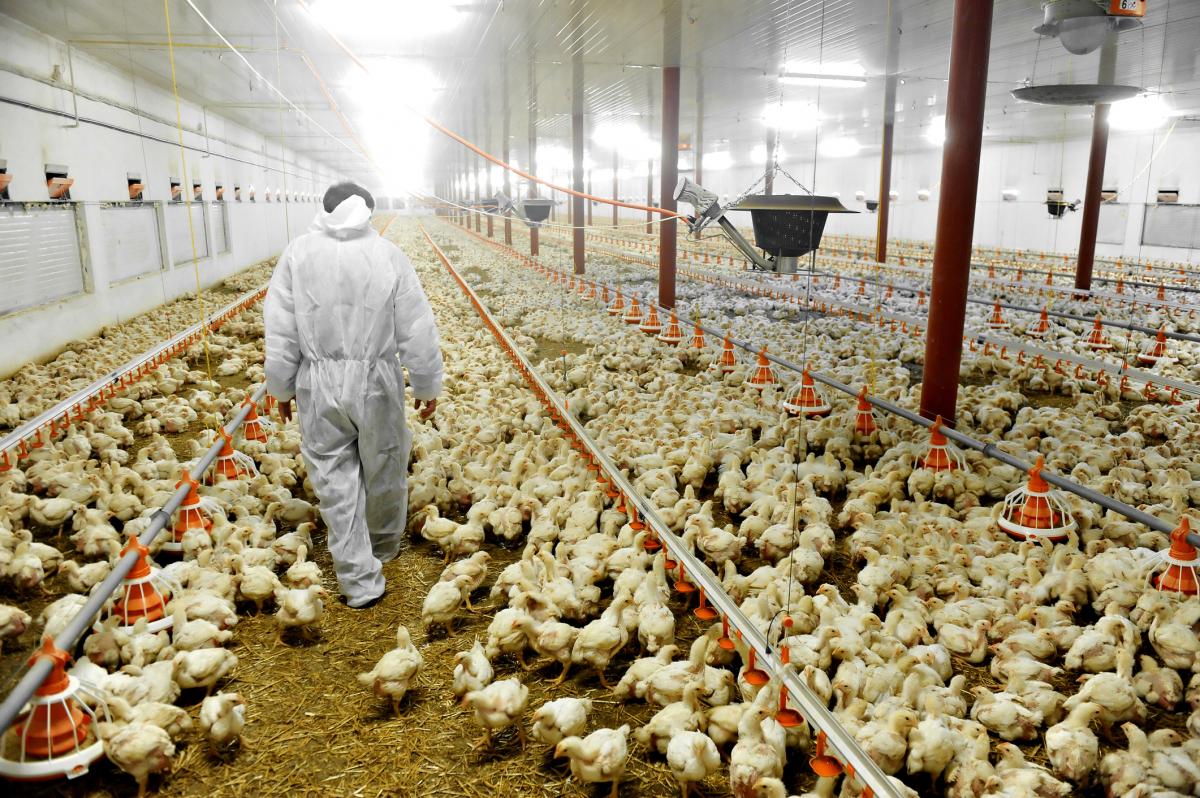
“We completed the Poultry Master Plan to support chicken farmers and processors and save 54 000 jobs, while creating new jobs.”
He said the industry is now focused on growth, greater production and more investment.
“We will set a new poultry import tariff adjustment to support the local industry.”
Government has also developed a plan with farmers and industrial users to save jobs in the sugar industry and will finalise a Sugar Master Plan within the next six weeks. A a new steel Master Plan will also be finalised in the coming six months.
The President also announced that government will this year open up and regulate the commercial use of hemp products, providing opportunities for small-scale farmers.
He said government will formulate policy on the use of cannabis products for medicinal purposes, to build this industry in line with global trends.
“The regulatory steps will soon be announced by the relevant ministers.”
This year, government also implemented key recommendations of the Presidential Advisory Panel on Land Reform and Agriculture to accelerate land redistribution, expand agricultural production and transform the industry.
The Presidential Advisory Panel on Land Reform was established to review, research and suggest models that will ensure a fair land reform process.
Thousands of South Africans across the country expresed their views on land reform through public hearings and written submissions.
The report provides perspectives on land policy in the context of persisting land inequality, unsatisfactory land and agrarian reform and uneven urban land development. SAnews.gov.za
BMW joins the fight against GBV
BMW joins the fight against GBV vuyelwanBMW Group South Africa has handed over five BMW i3 cars that will be used by community-based care workers to reach victims of gender-based violence.
The vehicles were received by President Cyril Ramaphosa and German Chancellor Angela Merkel before being handed over to the South African Business Coalition on Health and Aids (SABCOHA) to manage on behalf of the multi-sectoral Interim Steering Committee on gender-based violence and femicide (GBVF).
The automotive group’s contribution demonstrates the growing partnership between government and civil society, which includes the business sector and international partners, in the fight against GBVF.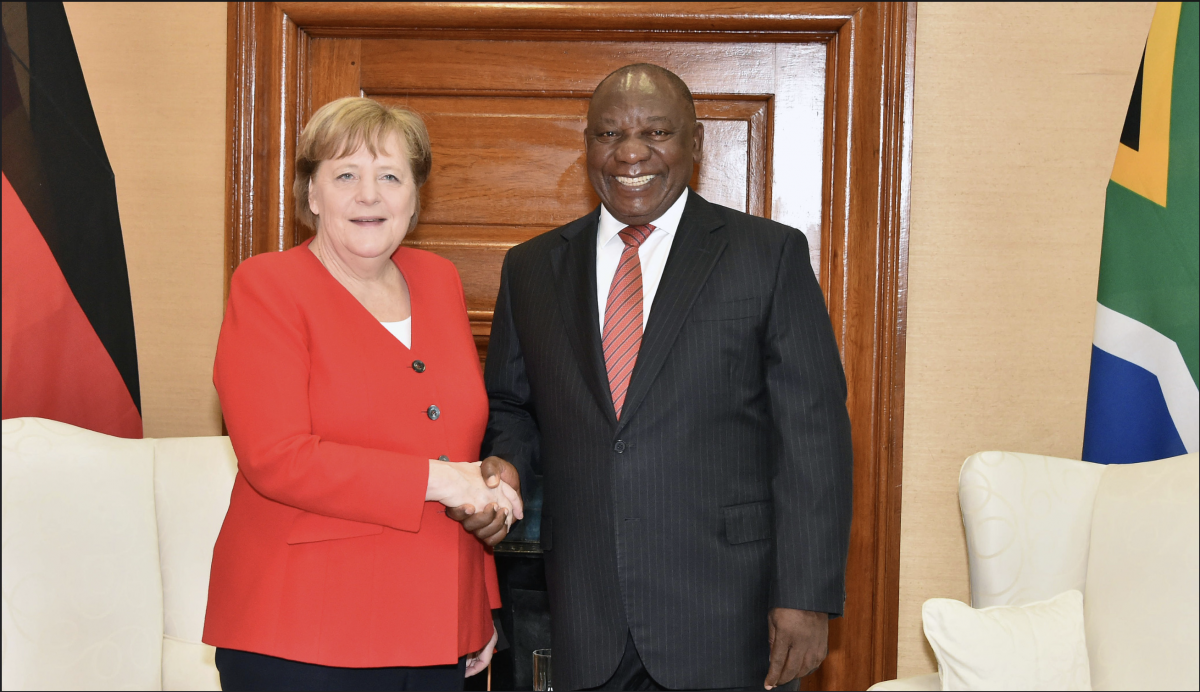
The initiative is part of the Automotive Industry Transformation Fund (worth R6 billion), which was established to increase participation in the sector by previously and historically disadvantaged groups, including women, youth and people with disabilities.
Speaking at the vehicle handover ceremony, held at the BMW Group production plant in Rosslyn, Tshwane, President Ramaphosa said the vehicles will help to save lives. He expressed his gratitude to BMW for being the first company to donate the vehicles, and encouraged others to follow suit.
“This practical expression of good corporate citizenship is sending a very good and clear message that we would like many other companies to also notice and adopt," President Ramaphosa said.
Emergency response plan to address GBVF
Government has been implementing an emergency response plan to address GBVF.
A National Strategic Plan on GBVF, which outlines a range of measures to tackle GBVF, has also been developed.
 “The plan focuses on strengthening prevention efforts, and ensuring safety and justice for the women and children of our country. The plan also touches on economic empowerment, an area that is so important that we, as government, will be focusing on,” President Ramaphosa said.
“The plan focuses on strengthening prevention efforts, and ensuring safety and justice for the women and children of our country. The plan also touches on economic empowerment, an area that is so important that we, as government, will be focusing on,” President Ramaphosa said.
Group Head of Production and chairman of BMW South Africa, Dr Milan Nedeljkovic, said 4 000 people in South Africa are directly employed at BMW Group, and four out of five managers are local.
In addition to this, more than 40 000 people are employed indirectly through the company’s utilities in South Africa.
“Our first formal training facility in BMW SA opened its doors in 1978 and since then, more than 2 000 have gone through training with BMW and received jobs at BMW," Nedeljkovic said.
He said the company’s philosophy underlines that education is the key to success, and “life-long learning through BMW Group is part of that success”.
“By 2025, we will support one million children and young people globally through targeted education programmes, focusing on skills programmes.” SAnews.gov.za
Coding and robotics for ‘little ones’
Coding and robotics for ‘little ones’ UrsulaPrimary school learners will this year be introduced to the world of coding and robotics from Grade R to three. This was announced by President Cyril Ramaphosa when sharing his plans for the year during the State of the Nation Address held recently in Parliament. 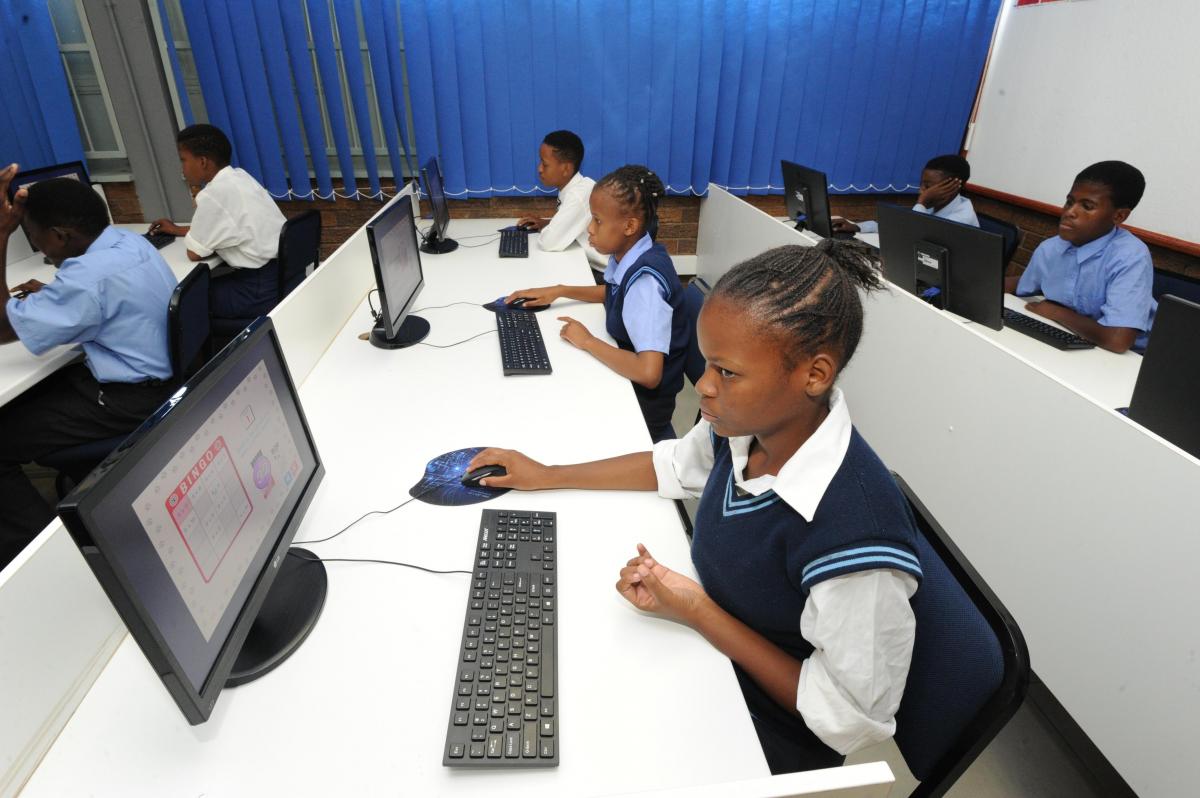
He said during 2020, about 200 schools will be teaching Robotics and Coding to learners.
This is one of the steps taken by government to equip learners with the required skills for the Fourth Industrial Revolution.
President Ramaphosa said the most significant contribution government can make to inclusive economic growth is in the development of appropriate skills and capabilities.
He said government is building nine new technical vocational education and training college campuses in Sterkspruit, Aliwal North, Graaff Reinet and Ngungqushe in the Eastern Cape, and in Umzimkhulu, Greytown, Msinga, Nongoma and Kwagqikazi in KwaZulu-Natal.
“We are making progress with the introduction of the three-stream curriculum model, heralding a fundamental shift in focus towards more vocational and technical education.
“Various technical vocational specialisations have already been introduced in 550 schools and 67 schools are now piloting the occupational stream,” President Ramaphosa said.
He said through bilateral student scholarship agreements signed with other countries, government is steadily building a substantial number of young people who go overseas each year for training in critical skills.
“We have seen the impact this can have with the Nelson Mandela Fidel Castro Medical Training Programme in Cuba which has produced over 1 200 medical doctors and a further 640 students are expected to graduate in December 2020.”
Government has also decided to establish a new University of Science and Innovation in Ekurhuleni.
“This will enable young people in that metro to be trained in high-impact and cutting-edge technological innovation for current and future industries.”
Government has introduced new technology subjects and specialisation, including technical mathematics and technical sciences, maritime sciences, aviation studies, mining sciences and aquaponics. SAnews.gov.za
Crime detection university for SA
Crime detection university for SA UrsulaA new crime detection university is on the cards to improve the quality of general and specialised police investigations. 
President Cyril Ramaphosa announced that the Crime Detection University will be situated in Hammanskraal, north of Pretoria.
He said plans for investment and growth in South Africa would require a safe, stable and crime-free environment.
“It is fundamental to the aspirations of all our people to live in security, peace and comfort,” the President said.
He further said that police visibility, effective training and better resourcing of police stations are part of South Africa’s priorities.
“I prioritised our response to the growing problem of criminal groups that extort money from construction and other businesses.” Specialised units – bringing together the South African Police Service (SAPS) and the National Prosecuting Authority – are mandated to combat these crimes of economic disruption. Anti-Gang units will be further strengthened, with priority given to the Western Cape, Eastern Cape, Gauteng and Free State.
“Following the graduation of 5 000 police trainees last year, 7 000 new police trainees have been enlisted this year to strengthen local policing.” Furthermore, President Ramaphosa said that in order to support growth of the tourism industry, the SAPS will increase visibility at identified tourist attraction sites.
“It is training Tourism Safety Monitors and will establish a reserve police capacity to focus on the policing of tourist attraction areas,” he said.
President Ramaphosa said that the fight against corruption and state capture will continue and that there is a need for South Africans to work together to root out corruption and strengthen the rule of law.
He discouraged citizens from paying bribes or engaging in corrupt acts, saying that South Africans should rather join forces and upgrade the culture of reporting crime when it is being committed as a means to win the fight against corruption.
“We therefore welcome the joint government and civil society working group charged with developing a national anti-corruption strategy and implementation plan, which is close to completion of this phase of its work,” he said.
The President said this strategy would be launched by mid-year. SAnews.gov.za
Disadvantaged schools to receive lab on wheels
Disadvantaged schools to receive lab on wheels UrsulaAround 700 children from a Tshwane farm school will benefit from a mobile lab that will enable them to do experiments they only previously read about in their textbooks. 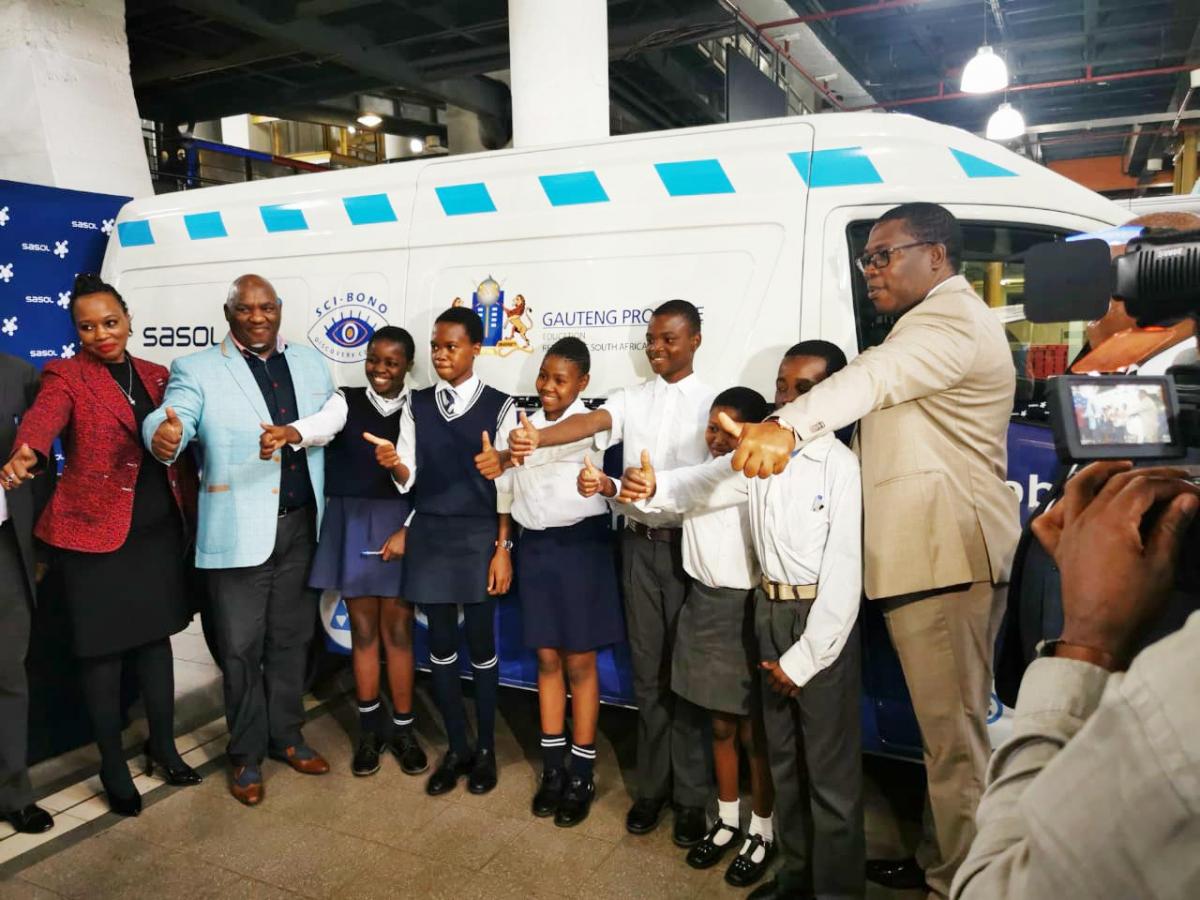
Pupils from a Centurion farm school will reap the rewards of a mobile science laboratory.
The travelling lab will enable pupils from Laezonia Primary School to better understand chemistry, physics and information and communications technology.
Principal of Laezonia Primary School Martha Raholale said thanks to the mobile lab, pupils from grades four to seven will be able to conduct experiments to enhance their learning.
“Our school is on a farm. We don’t have enough classrooms, a staffroom or a laboratory. This mobile lab will enable the pupils to see the things they are learning. The majority of them come from poor households and don’t have TVs on which they can watch these experiments,” Raholale said.
She said in the past, pupils did not do their homework because they did not have the right resources. “Our pupils will now conduct experiments here at school and their results should improve because they will be able to better understand what they previously only read about in books.”
The lab, which will serve 40 Gauteng schools, was donated to the Sci-Bono Discovery Centre by petroleum company Sasol. Sci-Bono Chief Executive Officer More Chakane said the lab will help promote the quality of pupil’s results. He said it would be rotated among schools in Gauteng’s poorest areas.
“With this mobile lab, we are also trying to change the attitude of pupils to say that these things we only see in books are practical," he said.
The laboratory will assist Gauteng in its aim of achieving a 100 percent matric pass rate.
Sci-Bono Discovery Centre, which is the biggest science centre in Southern Africa, also runs free science and mathematical experiments for disadvantaged schools.
Chakane said they approached Sasol to donate the mobile lab after realising that some schools could not afford to visit their Newtown, Johannesburg, premises on a weekly basis.
Eskom sheds light on loadshedding
Eskom sheds light on loadshedding angenithaEskom has developed a maintenance plan which will enable it to perform maintenance on its power plants.
At the end of January, new Eskom CEO Andre De Ruyter said Eskom cannot avoid loadshedding, given the state of the power system.
“It is constrained, unreliable, unpredictable and prone to unplanned outages and breakdowns.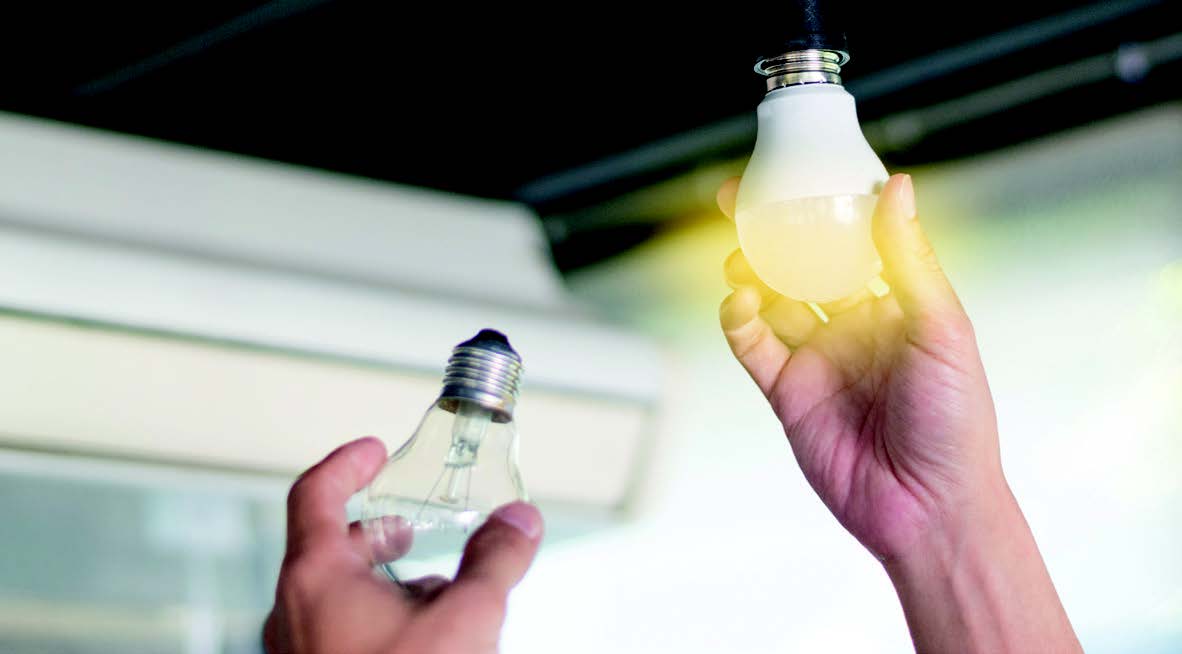
“We have a threshold for unplanned outages of about 9500MW. Over the past month this number has been hovering between 10 000MW and 13 500MW, which is too high. We then have to burn diesel on our open cycle gas turbines, which is a very expensive way of generating electricity,” said De Ruyter.
Eskom’s implementation of stage six loadshedding on 9 December last year demonstrated the seriousness of South Africa’s electricity challenges.
“In the past we neglected to perform scheduled maintenance as required, leading to unreliable equipment.”
To fix the system, Eskom now plans to maintain its plants as per the original equipment manufacturers’ guidelines.
There will be an increased probability of loadshedding over the next 18 months, as Eskom fixes the system.
“We have to expect some increase in loadshedding. We will do this in a careful, structured and managed way. If we don’t implement this maintenance plan, there is a very real risk that deterioration in our system’s performance will continue. We need an intervention as soon as possible.”
What is loadshedding?
The amount of electricity that Eskom can supply is sometimes not enough to meet South Africa’s needs.
Electricity demand is not consistent due to peak periods, when more people use electricity, and the increasing number of customers that need electricity.
As a result, loadshedding is implemented, when needed, to protect the power system from a total blackout. Loadshedding is also being implemented so that Eskom can carry out critical maintenance on its power plants.
General power outages should not be confused with loadshedding. Normal power outages can occur due to a technical fault in the transmission or distribution network or when electricity equipment has been tampered with, such as the theft of cables.
Eskom continues to monitor the system closely and provides South Africans with updates on the status of the power system, as things can change at short notice.
Save electricity
You can help to reduce the frequency of loadshedding by:
- Switching off your geyser during peak periods.
- Using the cold water tap, instead of the hot water tap which drains the geyser.
- Turning off lights, computers and other electrical equipment at the switch, when not in use.
- Using low energy globes.
- Only filling kettles with as much water as you need.
To be prepared for loadshedding, visit www.loadshedding.eskom.co.za
Fulbright scholarship applications open
Fulbright scholarship applications open vuyelwanThe United States Government has invited South Africans interested in pursuing a Master’s or Doctoral degree to apply for a Fulbright scholarship to study at any accredited tertiary institution in the United States.
The Fulbright Programme is the US Government’s flagship international educational exchange. It was established in 1946 to increase mutual understanding between the people of the US and other countries.
It currently operates in South Africa and more than 150 other countries worldwide.
Applications for the 2021-2022 Fulbright Foreign Student Programme are now open.
“The scholarships cover the full cost of tuition and living expenses in the US for up to two years. Highly motivated South Africans wishing to pursue a Master’s degree must have completed a four-year B-Tech degree or a three-year Bachelor’s degree with an Honours degree. Prospective Doctoral students must have successfully obtained a Master’s degree,” the US Embassy said recently.
According to the US Embassy, in 2019, 23 South African students and scholars received fully-funded Fulbright scholarships to complete postgraduate studies at American academic institutions and to conduct research in the US.
“These talented South Africans are currently pursuing studies in fields ranging from molecular biology and viticulture to mechanical engineering and philosophy, at institutions including Ohio State University, the University of Missouri, the Rochester Institute of Technology, the University of California, and the University of Pennsylvania.”
Students with disabilities and from underserved areas are encouraged to apply.
South Africans interested in applying for the Fulbright Programme can learn more by visiting za.usembassy.gov/Fulbright.
The closing date for submission of applications for scholarship is 31 March 2020 and applicants are encouraged to start the application process as soon as possible. SAnews.gov.za
Healthy eating made easy
Healthy eating made easy SiboneloIf you’re one of the many people who are prioritising their health this year, we’ve got you covered. Here are some great lunch ideas to help you ditch the take outs and pack a healthy lunch box instead.
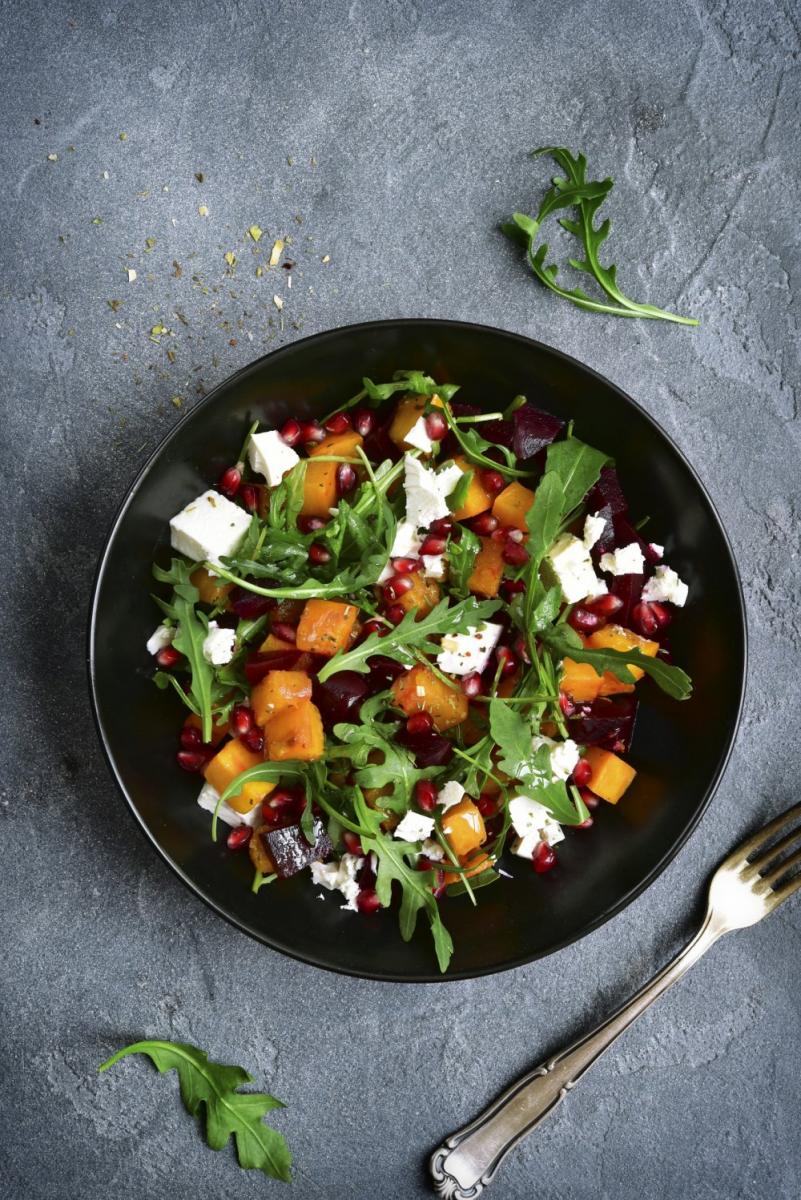 Butternut and beetroot salad
Butternut and beetroot salad
Ingredients
500g butternut (cubed)
500g beetroot (peeled and cubed)
200g rocket
150g feta
200g pomegranate
2 garlic cloves (crushed)
2 tablespoons oil
Balsamic vinegar (to serve)
½ teaspoon chilli flakes
Salt and pepper to season
Directions
In a bowl, add the butternut and drizzle a tablespoon of oil to coat. Sprinkle chilli flakes over the butternut, followed by a pinch of salt and pepper. Mix all together then place on a greased baking tray.
Follow the same procedure for the beetroot as the butternut. Roast the butternut and beetroot for 30 minutes in a preheated oven at 190°C.
Once the beetroot and butternut are tender, remove from oven and let cool.
In a salad bowl, place half of the rocket, followed by half of the butternut and beetroot.
Crumble half the feta cheese over and repeat this process with remaining ingredients. Finally, sprinkle over the pomegranate and your salad is ready to go. Drizzle balsamic vinegar over the salad when serving.
Chicken quinoa bowl
Ingredients
1 avocado (sliced)
500g baby spinach
¼ cup canned chickpeas (drained)
1 red pepper (cut into strips)
2 cups quinoa
1 cup Brussels sprouts (halved)
1 chicken breast (deboned)
2 tablespoons olive oil
¼ cup balsamic vinegar
2 tablespoons soy sauce
1 garlic clove (crushed)
1 teaspoon mixed herbs (dried)
Salt and pepper to season
Sesame seeds to decorate
Directions
Brussels sprouts
Add four cups of water and salt and bring to a boil in a medium pot. Put the Brussels sprouts into the pot. Reduce the heat to low and simmer until sprouts are tender.
Quinoa
Add two cups of water and salt and bring to the boil in a medium pot. Rinse the quinoa through a fine mesh sieve until water is clear and transfer to the pot. Reduce the heat to low and simmer until water is completely absorbed. Remove from stove and let rest for five minutes before fluffing quinoa with a fork.
Chicken
Add soy sauce, balsamic vinegar, garlic and mixed herbs into a bowl and mix. Add the chicken breast to the mixture and let it marinate for 30 minutes. Bring a griddle pan to medium heat and grill chicken breasts until cooked through. Remove from the pan and set aside to rest. Once cooled, slice the chicken breasts into the thickness of your choice.
In the same pan, grill the red peppers for one minute on one side.
In a bowl add your baby spinach, sliced chicken breasts, avocado, peppers, quinoa, Brussels sprouts and chickpeas. Sprinkle sesame seeds over and serve.
Tuna wrap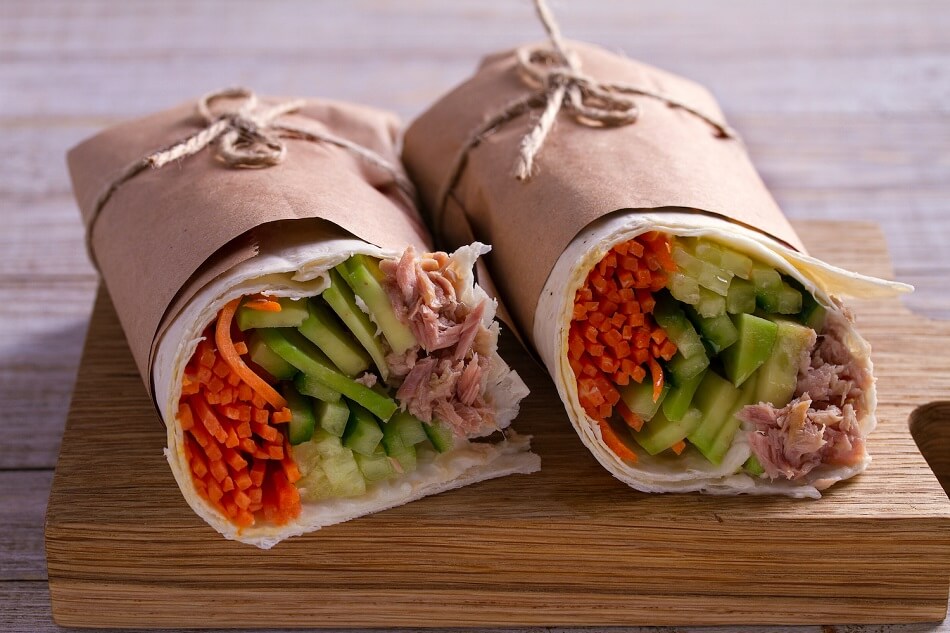
Ingredients
2 tablespoons cream cheese (flavour of your choice)
2 wraps
4 carrots (stripped, diced or shaved)
¼ cucumber (stripped, diced or shaved)
¼ onion (stripped or diced)
1 avocado sliced
1 cup tuna (drained and seasoned with salt and pepper)
Directions
Spread a tablespoon of cream cheese across the wrap. Place the carrots, cucumber, onion, avocado and tuna in the middle of the wrap, fold over the one end and roll it. Fold in the two ends to secure the filling, then cut it in half and serve.
Improving energy generation
Improving energy generation angenithaGovernment is working hard to improve South Africa’s energy generation capacity.
“Over the next few months, as Eskom works to restore its operational capabilities, we will be implementing measures that will fundamentally change the trajectory of energy generation in our country,” President Cyril Ramaphosa said.
Delivering his State of the Nation (SONA) Address to a Joint Sitting of Parliament recently, President Ramaphosa assured South Africans that government is working to address the country’s energy challenge.
Eskom recently announced that the probability of load shedding is expected to increase as the power utility carries out its newly developed comprehensive maintenance plan, aimed at fixing its system which is constrained, unreliable and unpredictable.
Last December, Eskom implemented Stage 6 load shedding for the first time in its 96 year history.
Government has moved to significantly increase generation capacity outside of Eskom by introducing measures that will be implemented in an effort to improve the constrained energy supply.
These include a Section 34 Ministerial Determination that will be issued shortly to give effect to the Integrated Resource Plan 2019, enabling the development of additional grid capacity from renewable energy, natural gas, hydro power, battery storage and coal.
In addition, measures will be put in place to enable municipalities in good financial standing to procure their own power from independent power producers.
“For over a decade, South Africans have had to contend with the effects of a constrained energy supply. I have spoken extensively about the critical role that Eskom plays in the economy of our country and in the livelihood of every South African.”
Loadshedding affecting the economy
The President said the load shedding of the past few months has had a debilitating effect on the economy.
“At its core, load shedding is the inevitable consequence of Eskom’s inability over many years – due to debt, lack of capacity and state capture – to service its power plants. The reality that we will need to accept is that in order for Eskom to undertake the fundamental maintenance necessary to improve the reliability of supply, load shedding will remain a possibility for the immediate future.”
He said where load shedding is unavoidable, it must be undertaken in a manner that is predictable and minimises disruption and the cost to firms and households.
In line with the roadmap announced last year, Eskom has started with the process of divisionalising its three operating activities – generation, transmission and distribution – each of which will have its own board and management structures.
SAnews.gov.za
Jobs: Government Communication and Information System - Mar 2020
Jobs: Government Communication and Information System - Mar 2020 SiboneloPost: Director: Legal Services
Salary: An all-inclusive package of R1 057 326 per annum
Centre: Hatfield, Pretoria
Reference Number: 3/1/5/1 – 20/13
Closing Date: 13 March 2020
Enquiries: Ms Z Ngwenya; 012 473 0472
Applications: The Director-General, Government Communications, Private Bag X 745, Pretoria, 0001 or hand deliver to Tshedimosetso House, Corner Frances Baard and Festival streets, Hatfield, Pretoria.
For more information on the requirements and functions/key performance areas of this position, visit www.gcis.gov.za.
Land restitution benefits 1 200 households
Land restitution benefits 1 200 households angenithaA community of 1 200 families is profiting from two farms they received in 2008, through government’s land redistribution programme.
Secretary of the Selwane Communal Property Association Harry Malatji said they have both a citrus and nature reserve on their farm.
The 4 010-hectare nature reserve known as Selwane Nature Reserve started official operations in 2019 and offers eco-tourism, game drives and training for hunting.
Visitors to the nature reserve get to see impalas, giraffes and waterbucks, among other animals.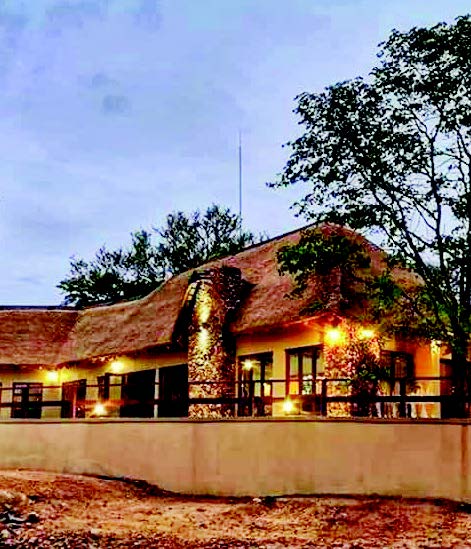
Malatji said the Selwane Nature Reserve works and shares the profits with its joint venture partner Siabix Pty Ltd. He said that after a rocky road, the nature reserve is now starting to be financially viable.
Siabix’s Managing Director Neil Fourie said the company is responsible for the day-to-day running of the Selwane Nature Reserve.
He said they have been doing development work on the land.
"The opening of the nature reserve saw locals being skilled hospitality, construction and general farm work," said Malatji.
Twenty-three people are permanently employed at the nature reserve – 11 young women, 10 young men and two people living with disabilities.
Malatji said the reserve has been badly affected by poachers, but a partnership with the police and other strategic partners is addressing the problem.
Waterbok farm
Malatji also gave an overview of the Waterbok farm which is the second business that is being run on the farm.
Malatji said Waterbok employs 35 people permanently and during harvest locally-owned businesses are employed to do additional work.
The farm grows and sells oranges, lemons, cucumber, baby marrow and potatoes.
The citrus farming is done on 250 hectares, while 150 hectares is used for vegetable farming.
The fruits and vegetables are sold to markets in Johannesburg, local retail stores and small businesses in the area.
Malatji added that last year the Department of Rural Development and Land Reform gave the Selwane Community Property Association an injection of R22 million to further develop the farm.
"The money given to us by the department has allowed us to renovate the nature reserve which will allow us to attract more tourists."
The Department of Rural Development and Land Reform has spent more than R147 million in grants funding, from which a sizeable number of restitution projects have benefited in the current financial year.
Learners go wild with the joy of nature
Learners go wild with the joy of nature SiboneloOver 25 000 learners get the opportunity to leave the classroom every year to enjoy a learning experience in nature, at environmental education centres run by the Wildlife and Environment Society of South Africa (WESSA).
WESSA runs five education centres, three in KwaZulu-Natal and one each in Limpopo and the Northern Cape, where science teachers, environmental scientists, conservationists and tour guides treat children to a host of educational nature activities.
“Our centres are located in unique and protected environments, which many students have never been exposed to. The best way to protect these environments is through education and awareness,” said Matthew Cocks, General Manager of the centres.
The centres offer a number of education programmes, based on the CAPS curriculum, and also help children to develop other life skills.
“Our programmes help teachers and students understand specific habitats, scientific concepts and facts contained in the CAPS curriculum. As our programmes are outdoors, fun and practical, learners also develop soft-skills such as creativity, critical thinking, emotional intelligence, risk awareness and a sense of community and environmental upliftment,” Cocks explained.
When learners arrive at the centres, they are introduced to the guides and the environment through a set of fun activities. Then they go into nature and take part in a number of activities and experiments that teach them about the environment.
“The mini Stream Assessment Scoring System programme is one of our most popular programmes. Learners enter a stream or river to catch and identify invertebrates, which gives them an idea of the health of the river and the water quality. The goal is to enable participants to leave with practical ways to protect their own environment in their communities and schools,” said Cocks.
Jani Louw, a teacher from St Patrick’s College in Kimberley, said her group of learners had an incredible time at the Treasure Beach Environmental Education Centre in Durban.
“This camp truly enriched the lives of our learners. Not only did they have tons of fun, but they were taught about our natural resources in way that inspires,” said Louw.
Learners transforming communities
Learners transforming communities angenithaEmpowervate Trust is a youth development non-profit organisation (NPO) that works in partnership with the Department of Basic Education (DBE) to give learners an opportunity to become agents of change in their communities.
It runs a well-established initiative called the Youth Citizens Action Programme (Y-CAP), which is a competition-based programme that encourages learners from primary and secondary schools to identify challenges affecting their schools and communities and come up with solutions.
Empowervate Trust Founder and Chief Executive Officer Amanda Blankfield-Koseff said the idea to establish the programme came to her while she was working for a non-governmental organisation as a marketing manager. 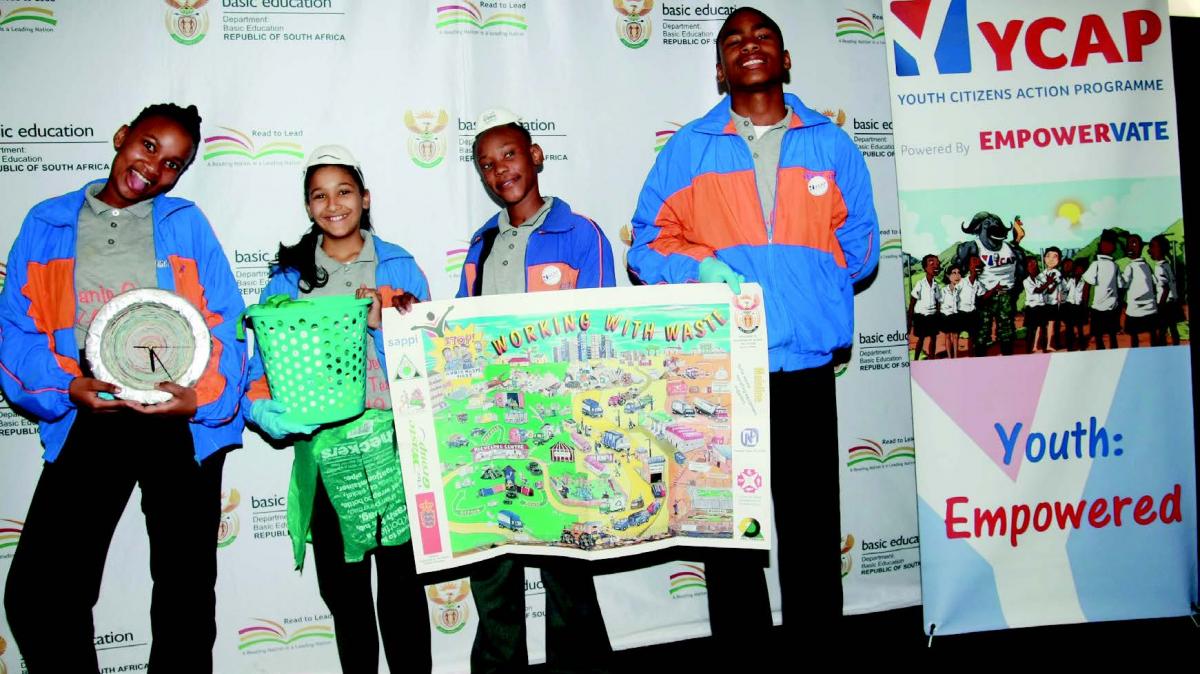
Back then, she was responsible for facilitating youth dialogues to discuss problems facing communities.
“I realised that young people were excited to be given a platform to talk about issues affecting their communities and to suggest solutions, but it was just a ‘talk show’ and that eventually discouraged them,” she explained.
Blankfield-Koseff suggested to her boss that the programme be changed into an action programme so that it could be impactful, with concrete results, and was given the go-ahead to run with the project. It was decided that it would proceed as a school competition to incentivise participation.
The programme was pitched to the education department and in 2010, Y-CAP held its first competition. The pilot project was run in four provinces – the Eastern Cape, KwaZulu-Natal, the Western Cape and Gauteng.
Last year, 400 schools from across the country participated.
Four teams from different schools including primary, secondary, beginner and advanced level categories won a tablet and R5000 each for coming first place, and four teams that came second place won R2500 each.
Oranje Oewer Primary School in the Northern Cape won the 2019 beginner category. The team won first prize for a waste management project to keep their school environment clean.
Because Y-CAP is a partnership between an NPO and a government department, it won the Special Ministerial Award in the 17th Public Sector Innovation Awards 2019.
The DBE said partnerships with civil society are important because they are instrumental in mobilising society in support of the education of learners. It explained that while the school takes care of formal curricular education matters for children, civil society strengthens the informal co-curricular educational aspects, which are essential for the development of a well-rounded and holistically educated child.
If you want your school to be part of the programme, you can email info@empowervate.org for enquiries.
Local gymnast flips with joy
Local gymnast flips with joy SiboneloTshepang Mamabolo (16) from Orchards in the north of Pretoria is a trampoline gymnast who won his first international medal during the 27th Fédération Internationale de Gymnastique (FIG) Trampoline Gymnastics World Age Group Competitions in Tokyo, Japan, recently.
Mamabolo walked away with a silver medal in the 15-16 age group for double-mini trampoline gymnastics. 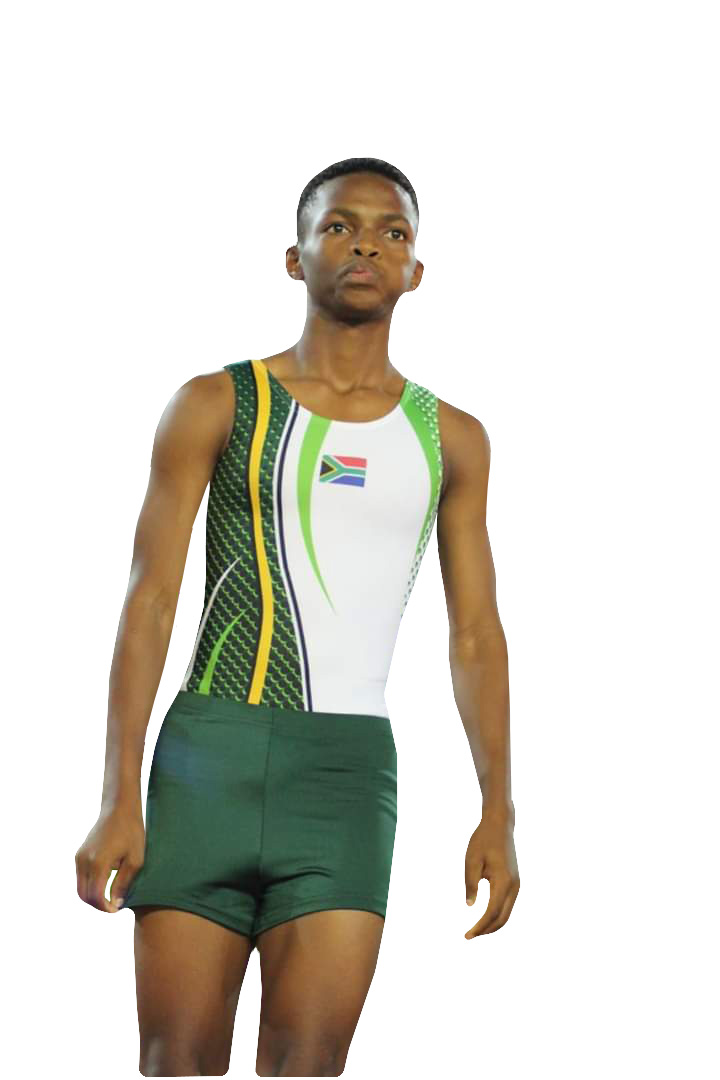
“I was overwhelmed. My parents, coach and the rest of my team members were proud and excited because they knew that I had always wanted an international medal. I have always wanted the world to know that South Africa has talent,” said Mamabolo, who has been a member of the Klim-Gim Trampoline Club since starting the sport in 2011.
“My mother’s colleague told her about the club and my mother took me to their trials. I was accepted into the club. It was not difficult for me because I liked to do flips from an early age. My friends and I would flip while we were playing and sometimes, I would even do flips while walking with my parents in a mall,” he said.
Mamabolo is ranked first in South Africa in individual trampoline and first in double-mini trampoline in the 15-16 age group.
He loves the sport because it has enabled him to tour the world.
“In 2015, I went to my first international competition in Denmark. I have also been to New Zealand, Bulgaria and Russia in 2016, 2017 and 2018, respectively. Last year, I went to Japan and then I went again in January for a training camp,” he said.
Mamabolo is a Grade 10 learner at Hoërskool Overkruin in Pretoria and wishes to become a software engineer.
“I am hoping the University of Pretoria will accept me when I apply for admission because I would like to pursue my studies and continue to polish my talent as a trampoline gymnast there,” he said.
His coach Offering Tlaka said South Africa’s junior gymnasts generally don’t get sponsored and their parents have to fund their trips, which places additional strain on the athletes.
His club too is in need of a financial boost. “The trampoline we are currently using is about 15 years old and every year a new one comes out and it performs better. We are always at a disadvantage when it comes to competitions because of that,” he explained.
NHI-ready clinics benefitting communities
NHI-ready clinics benefitting communities UrsulaClinics built as part of preparations for the launch of the National Health Insurance (NHI) are already making a difference in the lives of community members around the country. 
NHI pilot projects have been rolled out in 11 health districts countrywide and the Minister of Health has met with over 15 000 stakeholders.
At the end of 2019, eight NHI-ready clinics were opened in the OR Tambo District in the Eastern Cape. These clinics meet the criteria set out by the Department of Health’s Ideal Clinic Programme, meaning that they offer high quality healthcare to patients.
The criteria includes:
- good infrastructure
- adequate staff
- adequate medicine and supplies
- good administrative processes.
At the opening of the clinics, Deputy Minister of Health Dr Joe Phaahla said government is steadily moving towards its goal of providing free quality healthcare to all.
The clinics in OR Tambo have greatly improved the quality of healthcare available to community members in this rural region.
The Gengqe and Luthubeni clinics, for example, both replaced old mobile clinics. Built at a combined cost of R57.3 million, the clinics both provide a full package of services for a population of over 13 000 people.
Some of the main features of the clinics include:
- Fully equipped emergency rooms to deal with all types of emergencies.
- High ceilings and lots of windows and open spaces to assist with movement of air and reduce infections such as TB, coughs and colds.
- Three separate streams of care which cut down on patients’ waiting times.
Update on the NHI process
Through the NHI, funds will be pooled through general taxes. People who earn high incomes will also contribute special NHI taxes. Proceeds of the fund will then go towards providing free medical services for South Africans.
In February this year, the public hearings on the NHI Bill were concluded. The views raised will now be considered by Parliament’s Health Committee, before the Bill is voted on by the National Assembly and the National Council of Provinces. If the Bill is pass by Parliament, it will be referred to the President to be signed into law.
The NHI is expected to be fully operational in 2026.
Over 40 000 hectares of land released
Over 40 000 hectares of land released angenithaPresident Cyril Ramaphosa said government stands ready, following the completion of the Parliamentary process to amend section 25 of the Constitution, to table an Expropriation Bill that outlines the circumstances under which expropriation of land without compensation would be legal.
The President added that 44 000 hectares of state land have been released for the settlement of land restitution claims, and this year another 700 000 hectares of state land will be released for agricultural production.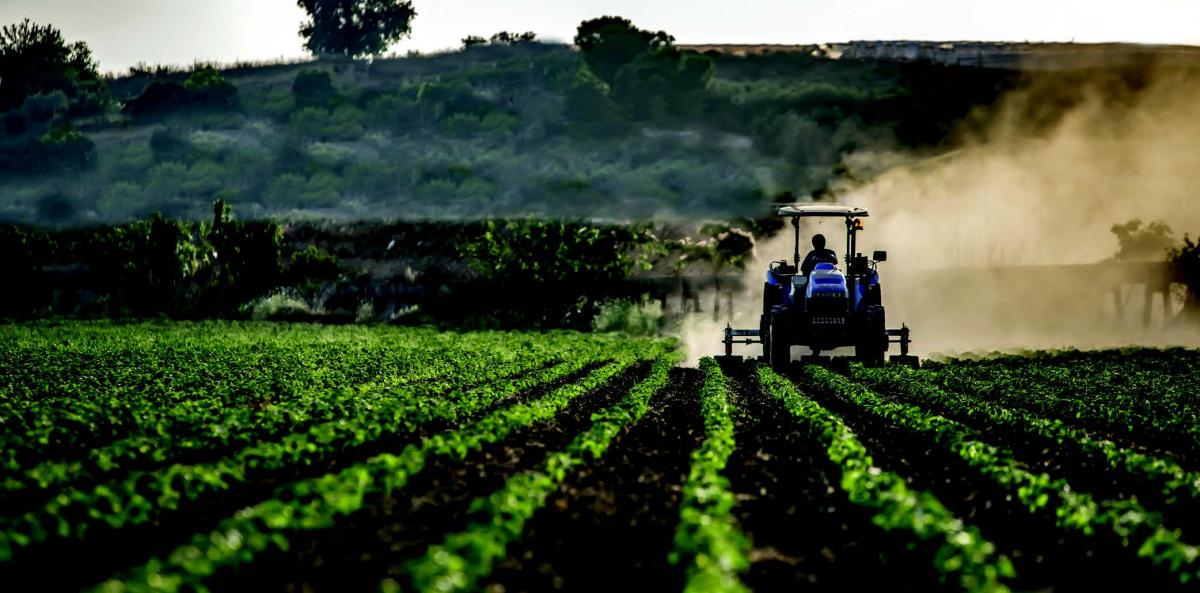
“We are prioritising youth, women, people with disabilities and those who have been farming on communal land and are ready to expand their operations for training and allocation of land.”
He added that a new beneficiary selection policy will ensure that compulsory training is given to potential beneficiaries before land can be allocated to them.
He added that 2020 is the year when key recommendations of the Presidential Advisory Panel on Land Reform and Agriculture to accelerate land redistribution, expand agricultural production and transform the industry will be implemented.
The President also noted that due to the drought in many parts of the country, farmers have lost crops and livestock, and many workers have lost their livelihoods.
Working with the Agricultural Research Council and other scientific and agricultural bodies, President Ramaphosa said government has developed drought mitigation strategies that focus on developing drought resistant seeds, planting and storing fodder, removing of invasive plants and management strategies to prevent soil degradation.
SAnews.gov.za
Plan your finances wisely
Plan your finances wisely angenithaThe new year is an opportunity for a fresh start, to set meaningful goals, create new habits and adjust your past financial spending habits to ensure a more sustainable future.
The economic conditions for 2020 look likely to be even tougher than in 2019, so it is imperative that you take a hard and objective look at your personal finances.
Achieving financial independence is an admirable goal, but very few people know where to start. Having a few good financial habits in place will help you set your new year up for success.
In order to ensure that you achieve your financial goals, you can adopt SMART goals for a financially secure future. This means setting goals that are:
- Specific
- Measurable
- Achievable
- Relevant
- Time-bound.
In addition, it is important that you plan your finances carefully. Here are some tips to help you along:
Set your financial goals - Reflect on your financial discipline in 2019 and set new goals for 2020.
Settle your debts - Put any spare funds or bonuses and salary increases towards eliminating debt, as paying off debt quicker could save you a significant amount of interest.
Adjust your budget as needed - As you track your spending habits, make necessary adjustments to your budget, increase your savings and decrease your spending. If you receive a salary increase, allocate some to your savings rather than increasing your lifestyle spending.
Review your insurance policies – Evaluate your life, health, disability and short-term insurance to ensure that the amounts match your needs.
Freely talk with your spouse about money - There is a tendency for spouses to hide financial issues from each other. Have monthly meetings to discuss budgets, your financial goals and what you both want for the future. Take time to build a shared vision of what you want your future together to look like.
Reduce your entertainment budget - Find free activities, such as parks, libraries and things to do in your neighbourhood. There are plenty of ways to have fun without spending money.
Tips to help you stick to the plan
Sticking to your financial plan is not always easy, but aim to:
- Regularly check your bank accounts – evaluate your spending.
- Be prepared for setbacks.
- Stay clear of unplanned debt.
- Make smart purchases. Ask yourself: Do I really need this? Is this part of my financial plan?
- Meet with a financial advisor if you have no idea where to start.
*Dr Rufaro Mucheka (PhD) is a Certified Financial Planner and Head of Strategy and Rest Of Africa at Nedbank Financial Planning.
Protection for abuse victims
Protection for abuse victims vuyelwanPresident Cyril Ramaphosa says the Domestic Violence Act will be amended to better protect victims in violent domestic relationships.
Delivering the State of the Nation Address (SONA) before a joint sitting of the two houses of Parliament, President Ramaphosa said the Sexual Offences Act will also broaden the categories of sex offenders whose names must be included in the National Register for Sex Offenders.
“We will pass a law to tighten bail and sentencing conditions in cases that involve gender-based violence (GBV),” President Ramaphosa said. 
President Ramaphosa noted that over the past six months, communities, government, civil society, religious groupings, the judiciary and Parliament want more to be done to end the crisis of violence perpetrated by men against women.
“It has been a truly united and determined response from all South Africans. Through building social compacts across society to fight this scourge we will be able to achieve much more … but it is only the beginning of the struggle.”
He said that progress has been made in several areas including the implementation of an Emergency Action Plan to deal with the scourge of GBV.
“We implemented an Emergency Action Plan and reprioritised R1.6 billion to support this plan until the end of the current financial year.”
The plan focuses on improving access to justice for survivors of violence and prevention campaigns to change attitudes and behaviour.
The plan also involves measures to strengthen the criminal justice process and to prioritise the creation of economic opportunities for women who are vulnerable to abuse. SAnews.gov.za
Quality affordable health for all
Quality affordable health for all UrsulaA fundamental condition for a country’s growth and development is a healthy and productive population, with access to quality, affordable healthcare. 
This is according to President Cyril Ramaphosa, who delivered the State of the Nation Address in Cape Town recently.
The President said government has noted the support from South Africans during public hearings on the National Health Insurance (NHI), and it is putting in place mechanisms for its implementation once the Parliamentary process in concluded.
According to the Department of Health, the NHI is a financing system that will make sure all citizens of South Africa (and legal long-term residents) are provided with essential healthcare, regardless of their employment status and ability to make a direct monetary contribution to the NHI Fund.
Government has already registered more than 44 million people at over 3 000 clinics in the electronic Health Patient Registration System.
“[We] are now implementing this system in hospitals.”
Speaking to the nation about efforts to fight HIV/AIDS, President Ramaphosa said about 6.8 million South Africans know their HIV status, about five million people are on antiretroviral treatment and about 4.2 million people’s HIV viral load is, as a consequence, undetectable.
“These are not just statistics. These are lives being improved. They are signs of progress,” the President said.
Furthermore, he said the Nelson Mandela/Fidel Castro Medical Student Training Programme in Cuba has yielded positive results. “It has produced over 1 200 medical doctors and a further 640 students are expected to graduate in December 2020,” the President said.
“This programme is a living monument to these two great revolutionaries,” he added.
He said South Africa has steadily improved the reach of education, improved the quality of healthcare and has tended to the basic needs of the poor.
Ready to reduce crime
Ready to reduce crime vuyelwanCape Town’s Luxolo Ndabeni (20), one of the first 500 learner law enforcement officers to complete training and sign an employment contract with the City of Cape Town, urges residents to work with law enforcement officers and the police to reduce violence and crime.
An August 2019 report on urban safety, released by the South African Cities Network, recorded that Cape Town had the highest murder rate in the country, with 69 people killed per 100 000.
The officers have been deployed in 10 communities, regarded as crime hotspots, and they use a data-driven approach to reduce crime.
Ndabeni urges community members to notify law enforcement officers or the police if they know anyone involved in crime. “It is our duty to make sure that we solve the matter. As one of the members appointed to help communities, I will make sure I do my job of protecting the communities I serve,” he said.
Also a third year psychology student at the University of South Africa, Ndabeni applied to become a learner law enforcement officer at the beginning of 2019 and started training in May. In November 2019, he started working as a law enforcement officer in Delft, Cape Town, through the Expanded Public Works Programme.
“My job is mainly crime prevention, protecting Delft’s community and keeping the neighbourhood safe. Since we started working in Delft, we have decreased the level of crime,” he confirmed.
Ndabeni said drug abuse is one of the main causes of crime in Cape Town, but the community helps by alerting police to suspected drug dealers.
Western Cape MEC for Community Safety Albert Fritz said the Western Cape Safety Plan aims to halve the murder rate over the next ten years, via these deployment interventions and targeted violence prevention programmes.
"The next 500 learner law enforcement officers are expected to be appointed by July 2020. Ultimately, the Western Cape Safety Plan foresees a total deployment of 3 000 officers, he said.
SONA 2020: Fixing the fundamentals
SONA 2020: Fixing the fundamentals vuyelwanState of the Nation Address
During his State of the Nation Address (SONA) on 13 February, President Cyril Ramaphosa assured South Africans that government is firmly focussed on fixing the fundamentals this year. 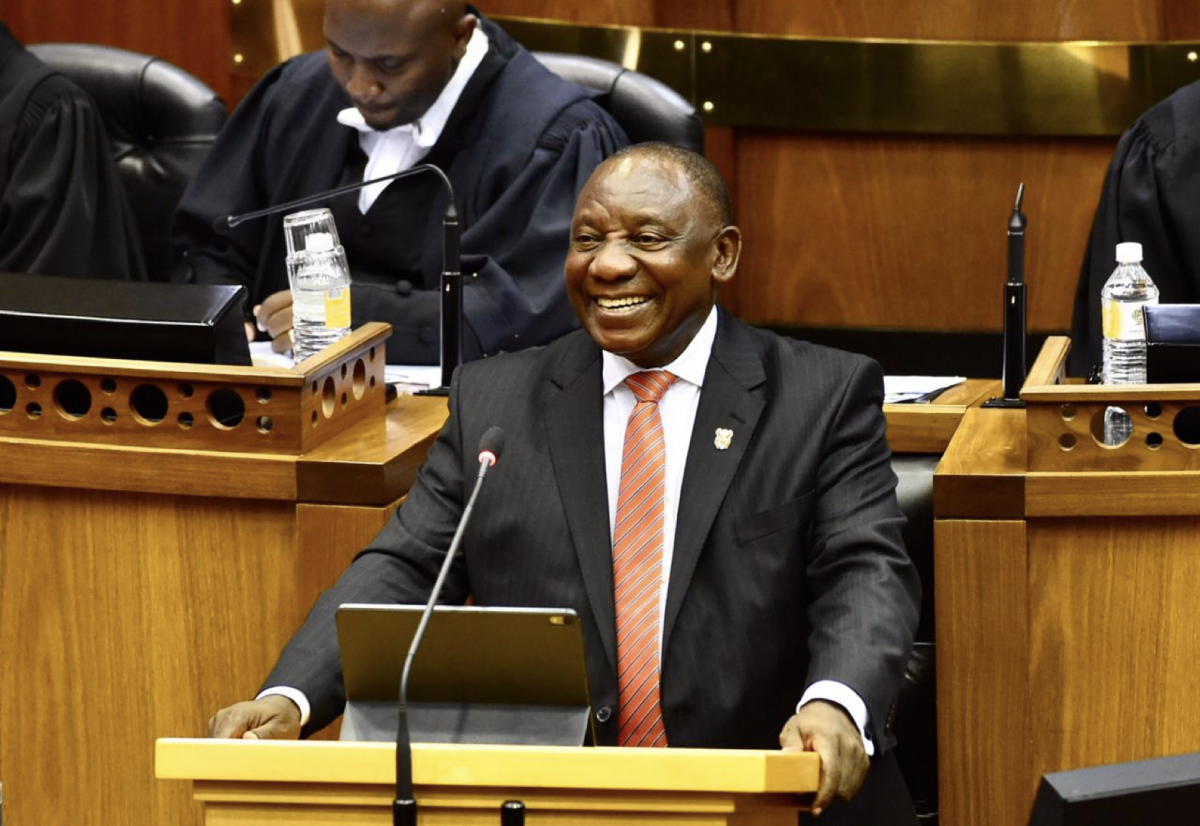
“Government is committed to pursuing critical areas of growth and ensuring excellence in planning and execution,” he added.
One of the most critical issues tackled by the President was loadshedding. He said while loadshedding remains a possibility for the immediate future and government will implement measures to energy generation in the country.
President Ramaphosa announced that measures will be put in place to enable municipalities in good financial standing to procure their own power from independent power producers.
Among various other planned initiatives, the Integrated Resource Plan 2019 will enable the development of additional grid capacity from renewable energy, natural gas, hydro power, battery storage and coal.
Jobs for young people
The President says, job creation and addressing youth unemployment remain firmly on government’s agenda.
Of the 1.2 million young people who enter the labour market each year, approximately two thirds remain outside of employment, education or training.
“From today, we begin the implementation of the Presidential Youth Employment Intervention – six priority actions over the next five years to reduce youth unemployment.”
The intervention includes launching five prototype sites, in five provinces, to grow a national network to reach three million youth via:
- multiple channels
- providing shorter, more flexible courses in specific skills that employers in fast-growing sectors need
- developing innovative ways to support youth entrepreneurship and self-employment
- scaling up the Youth Employment Service
- establishing the first cohort of a Presidential Youth Service programme
- leading a youth employment initiative.
Always high on government’s agenda is education. “We are making progress with the introduction of the three-stream curriculum model, heralding a fundamental shift in focus towards more vocational and technical education.”
He said various technical vocational specialisations have been introduced in 550 schools and 67 schools are piloting the occupational stream.
“We are building nine new technical and vocational education and training (TVET) college campuses this year,” the President confirmed.
Combatting crime and GBV
Police visibility, effective training and better resourcing of police stations were promised by the President.
“I have prioritised our response to the growing problem of criminal groups that extort money from construction and other businesses,” the President said, explaining that specialised units - bringing together the South African Police Service (SAPS) and the National Prosecuting Authority - are mandated to combat these crimes.
In terms of rooting out corruption, the Joint Government and Civil Society Working Group is developing a national anti-corruption strategy and implementation plan, which should be launched by the middle of the year.
“The Zondo Commission of Inquiry into State Capture continues with its critical work with the full support of government and other institutions.
“I have received a detailed report on the Commission of Inquiry into the Public Investment Corporation. I will make it available to the public, together with a plan on taking the findings and recommendations forward."
Government’s emergency action plan to combat gender-based violence (GBV) will see the Domestic Violence Act amended to better protect victims in violent domestic relationships, while the Sexual Offences Act will be changed to broaden sex offender categories.
"Over the past two years, we have worked together to build a foundation for progress. Now is the time for us to build on that foundation."
Other priorities
Government is thus introducing the SheTradesZA platform to assist women-owned businesses to participate in global value chains and markets, and the Industrial Development Corporation is targeting R10 billion of own and partner funding for women-empowered businesses over the next five years.
“The empowerment of women is critical to inclusive economic growth,” the President said.
In addition, the Procurement Bill will soon be presented to Parliament to empower black and emerging businesses and advance radical economic transformation.
“Over the past two years, we have worked together to build a foundation for progress. Now is the time for us to build on that foundation, to unite, to work, to persevere. We will not surrender our future to doubt, or despair, or division. We will continue our onward march to freedom,” the President concluded.
South Africa’s amazing tree of life
South Africa’s amazing tree of life vuyelwanAs the world becomes increasingly concerned about climate change, South Africans are turning to an incredible indigenous tree to not only help in the fight against this global problem, but also to create incomes for disadvantaged members of society.
The spekboom tree absorbs huge amounts of carbon dioxide – the main gas which is causing the world to become warmer each year.
Three years ago, Peter Shrimpton, founder of non-profit organisation Heart Capital, recognised the potential of the spekboom to fight climate change.
“I read an academic paper on the amazing ability spekboom has to absorb carbon, so I decided to plant a few trees,” said Shrimpton.
When he discovered that the tree was very easy to grow, Shrimpton saw an opportunity to make a difference in the lives of disadvantaged people around Cape Town.
“I thought it would be an incredible way to lift people out of poverty. I went into townships and enabled disadvantaged people to start growing spekboom for me by giving them the growbags, compost, mother stock and training on how to plant and grow spekboom.”
Through Shrimpton’s initiative, called Wonder Plant, five ‘treepreneurs’ have been employed to grow spekboom. The trees are sold to members of the public and organisations and the proceeds are then used to provide an income for the growers.
“Each of the treepreneurs manages around 25 000 trees. I started with 300 trees, and we currently have 164 000 in stock,” said Shrimpton.
The treepreneurs all stay in Chic Shanty Town, a residency funded by Heart Capital to provide homes for disadvantaged community members.
Before coming to Chic Shanty Town, treepreneur Ashwell Musonza was working on a grape farm in the area but said he was not earning enough.
“I enjoy caring for the spekboom trees as they provide individuality and a sustainable income,” he said.
Shrimpton said Wonder Plant also assists other members of the community, as well as schools in the area. “We’ve just partnered with schools to enable poor parents to grow Trees for Fees. We'll provide them with the materials and then purchase the trees from them, so they can have money to pay for their kids’ education.”
Special Official Funeral for Joseph Shabalala
Special Official Funeral for Joseph Shabalala vuyelwanPresident Cyril Ramaphosa has declared a Special Official Funeral Category 2 in honour of Joseph Shabalala, the late founder of choral group Ladysmith Black Mambazo.
Shabalala passed away on 11 February 2020, following an extended illness at the age of 78-years.
The Special Official Funeral Category 2 entails ceremonial elements provided by the South African Police Service (SAPS).
“President Ramaphosa has ordered that the National Flag be flown at half-mast at every flag station in the country until the evening of 22 February 2020. Regulations require that no other flags should be displayed when the National Flag is flown at half-mast,” said the Presidency recently.
The funeral will take place on Saturday, 22 February 2020.
Meanwhile, the President reiterated his condolences to the Shabalala family and members of Ladysmith Black Mambazo.
He conveyed his condolences to members of the arts and culture fraternities in South Africa as well as those abroad with whom the isicathamiya group had collaborated with for the better part of their six decade career.
In 2008, this world-renowned and widely awarded choral group received the National Order of Ikhamanga for putting South African cultural life on the world map through contributing to the field of South African indigenous music. – SAnews.gov.za
The opening of Parliament was a showcase of MPs and guests' pride in our country.
The opening of Parliament was a showcase of MPs and guests' pride in our country. Sibonelo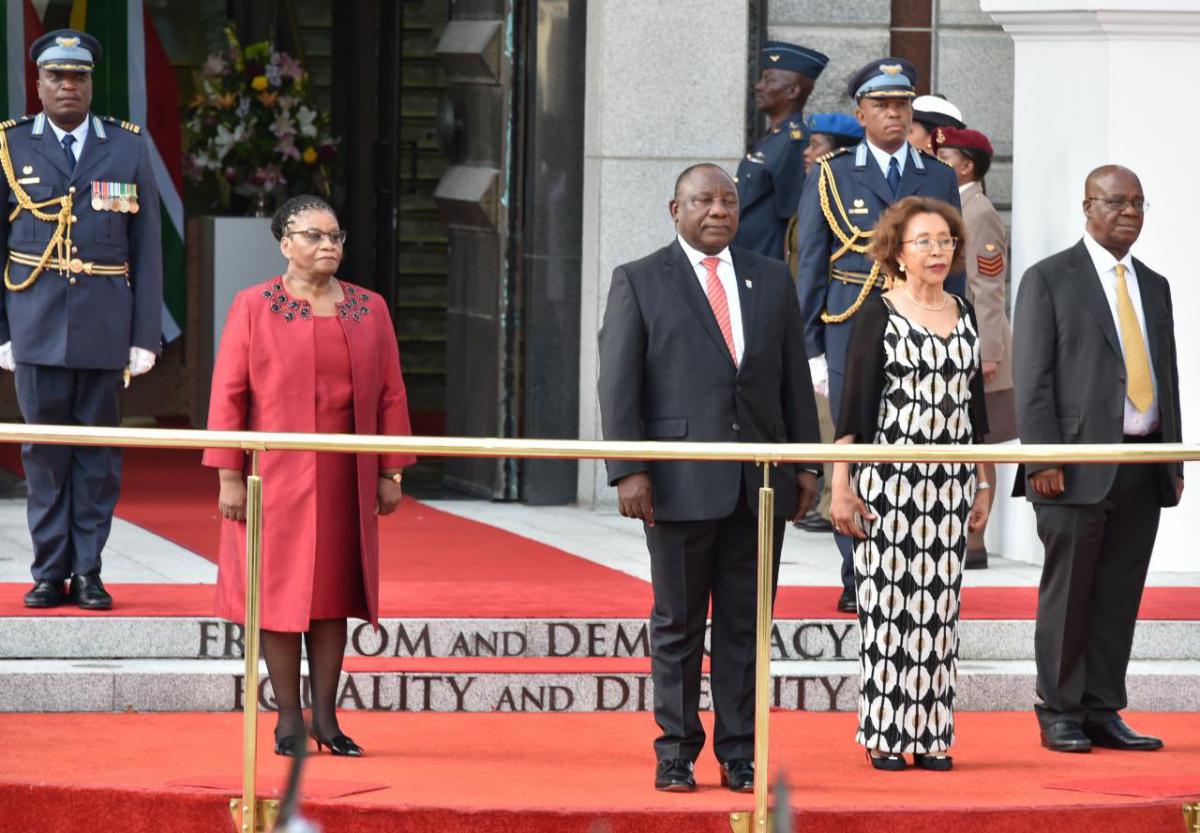
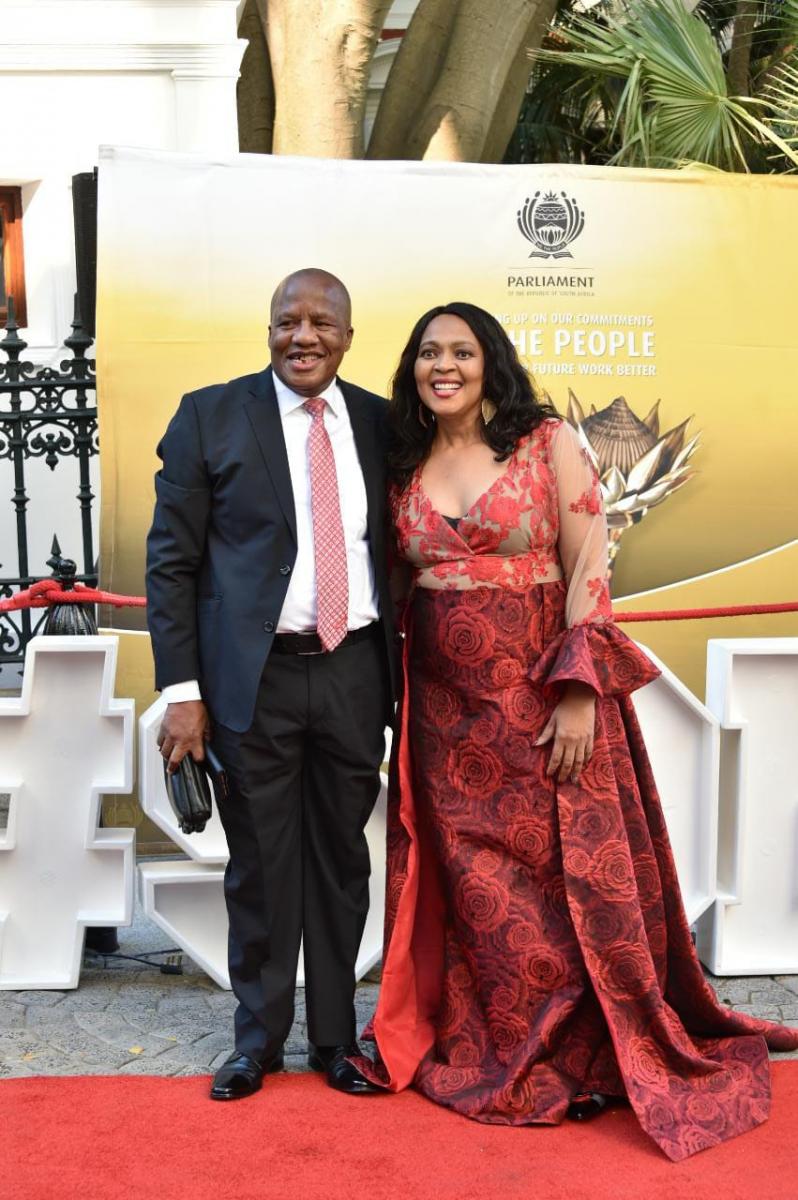
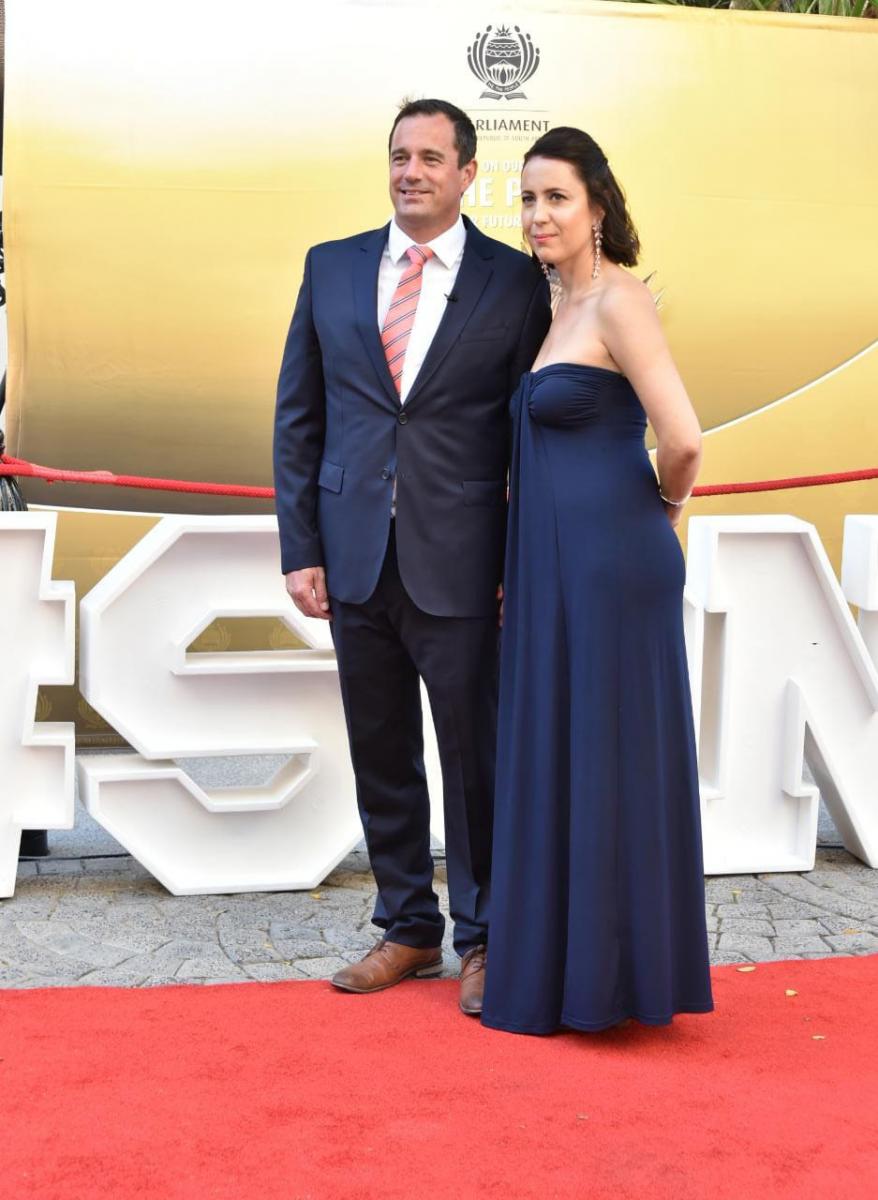
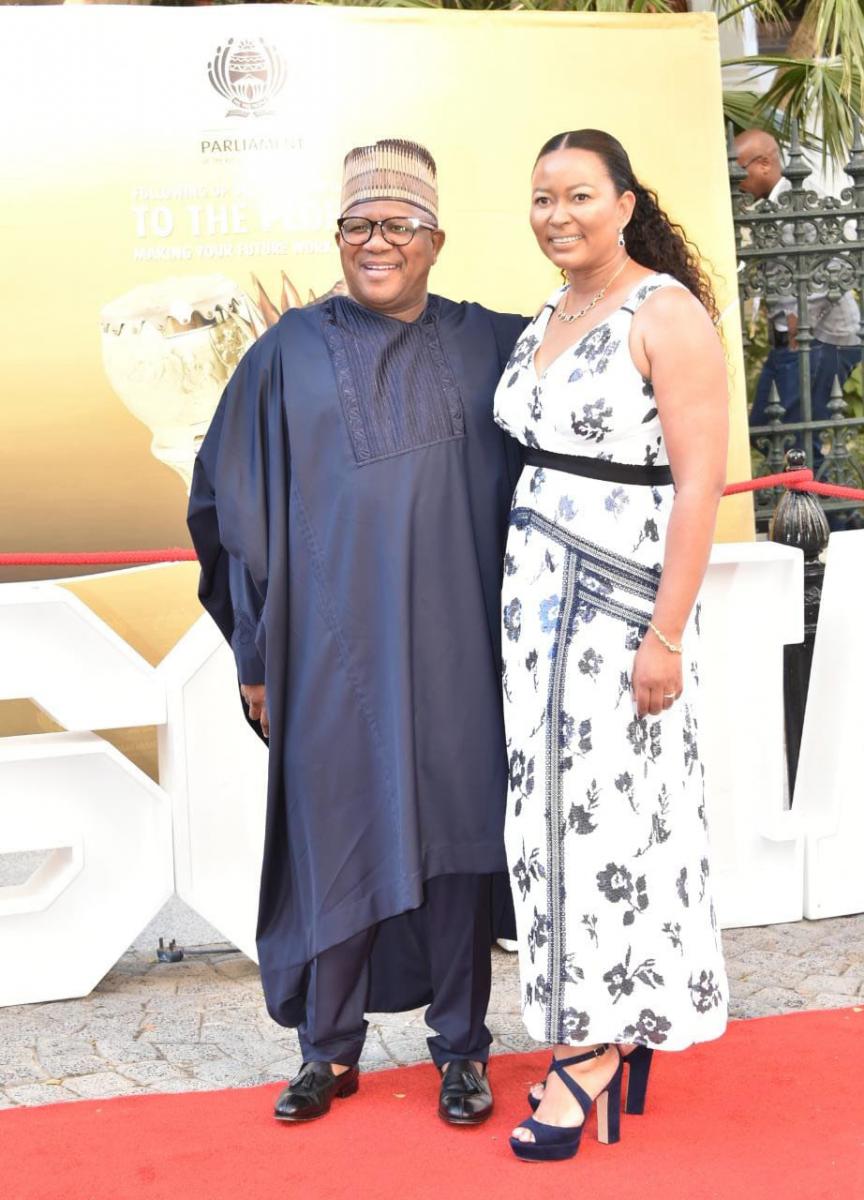

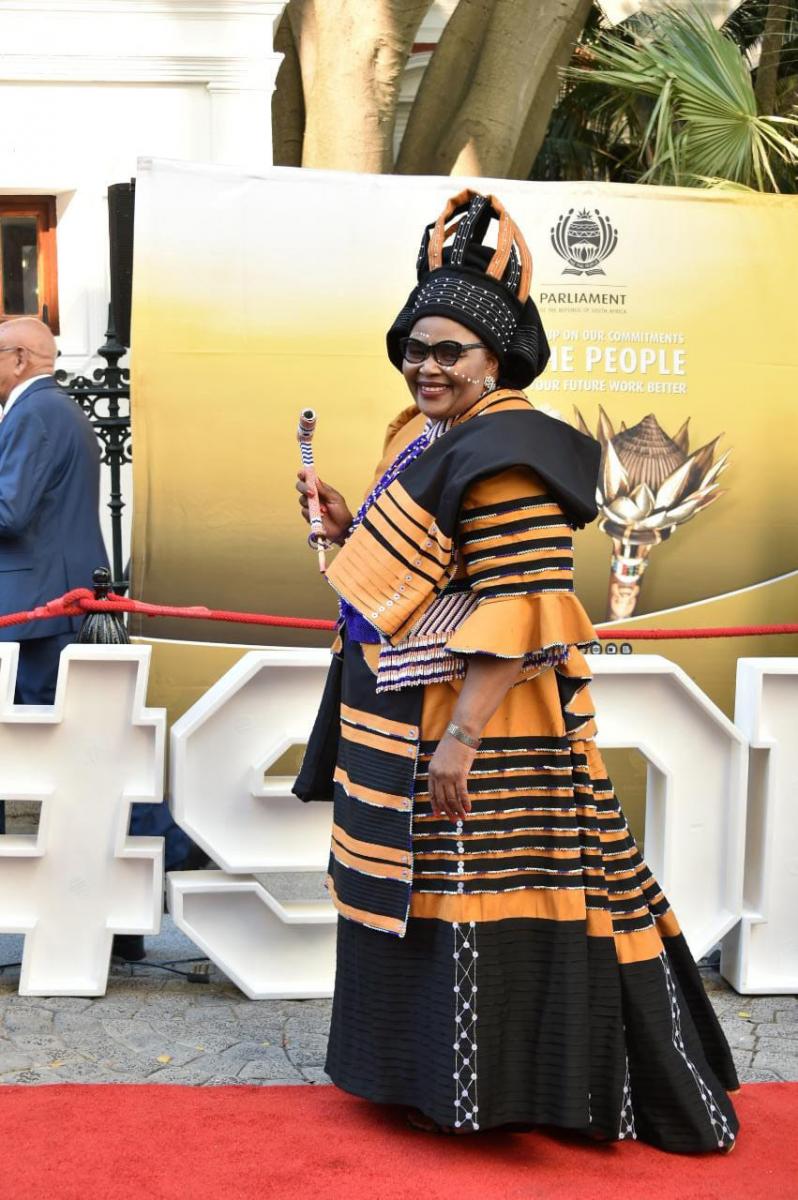

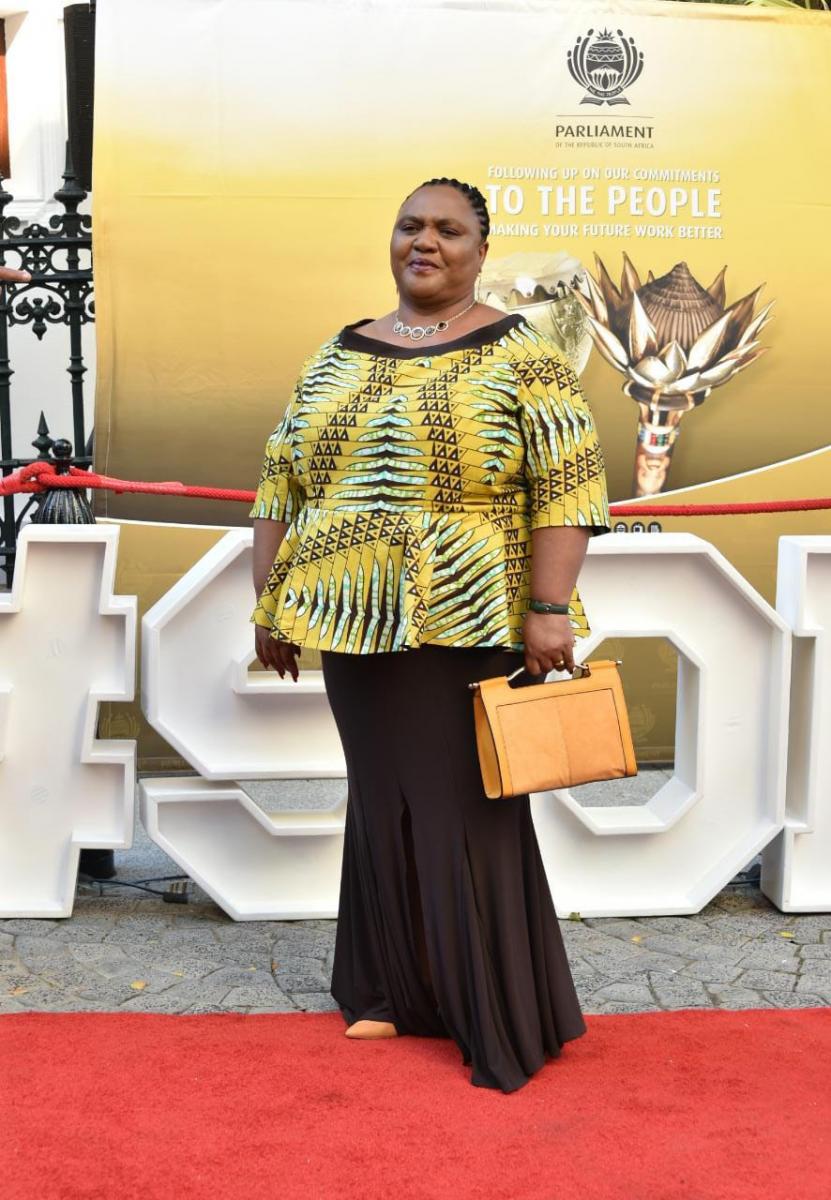


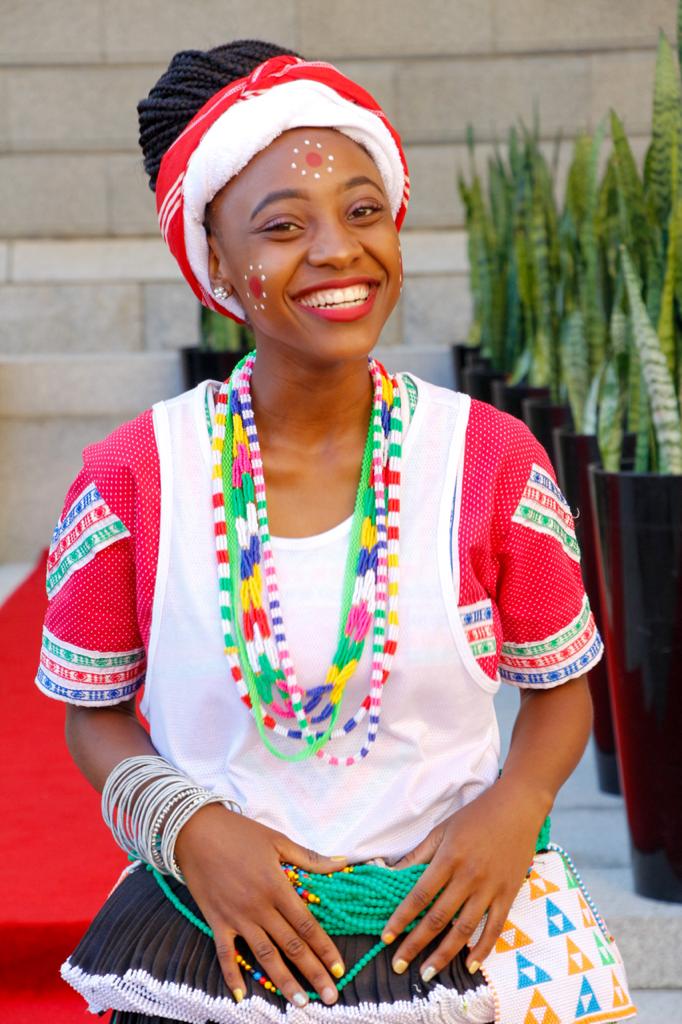
Water entrepreneur’s thirst for success
Water entrepreneur’s thirst for success angenithaSister and brother team Sanele Masilela and Banele Nkosi are looking to inspire a whole new generation of black entrepreneurs, as they chase their own dreams of success.
Masilela (29) is the director of a purified water business in Germiston called Cystil Water, which she started with just R500.
Ever since she was a little girl, Masilela has dreamed of being successful. 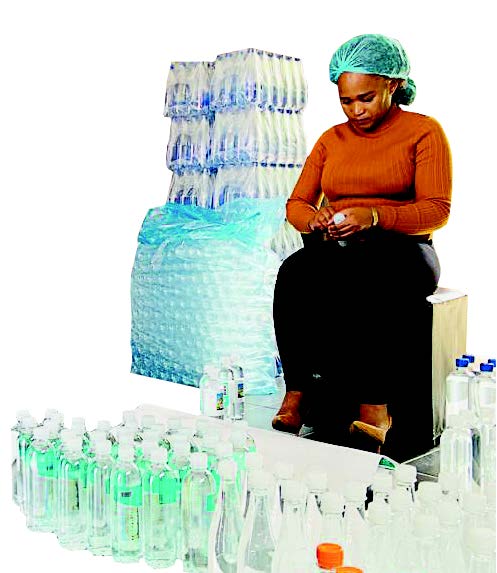
After matric, Masilela could not afford to study further and found a job at a call centre company, which she hated. She then found a sales job which promised good pay.
“I began selling flavoured water for the owner and making her a lot of money. But at the end of the month, we would not get paid.”
Masilela knew that she had a talent for sales and a passion for entrepreneurship, so with just R500 starting capital, she decided to start selling her own water in 2016.
“I started alone, buying some stock and selling it to shops. On the first day, I came back with R800 and had made a R300 profit,” said Masilela.
Masilela steadily saved up her money to buy a water purifying machine and began producing her own water from her mother’s garage. She now employs three people to assist her, while Nkosi is the company’s business development strategist.
“We have secured clients, including clubs and pubs, to which we sell branded water. We also get orders for events, like weddings. The business is not where I want it to be yet, but it is growing,” said Masilela.
Nkosi says he admires his sister’s complete dedication, passion and hard work.
“She has been relentless in chasing her goals. Even when everyone around her questioned her and even when she wasn’t making money, she stuck with it.”
Nkosi added that they want to inspire a whole new generation of hard-working black entrepreneurs.
“The mindset of many of our peers is that government will give them everything. We want to inspire a new generation that achieves success through their own hard work and determination.”
Masilela’s five tips for success
- Choose to do something you are passionate about or good at.
- Use the internet to research the field you want to start your business in.
- Train yourself on how to start a business. Understand all the challenges.
- Save money and invest it back into growing the business.
- Keep working towards your dreams no matter what people say.
Young people are SA's real jewels
Young people are SA's real jewels vuyelwanUnion Buildings

Engaging with young people always leaves me energised. It is exciting to gain insight into their struggles and triumphs and their vision for what can be done to improve this country.
There is no denying that youth are a significant presence in our nation’s psyche and fabric.
Far from the perception that they are complacent, politically apathetic or self-absorbed, local and international studies consistently affirm that young people around the globe are always more positive about their prospects.
According to the findings of an Ipsos Pulse of the People poll released in January, 61% of South Africans aged 15 to 17 feel optimistic about 2020.
I have no doubt this is a sentiment shared by youth in general and especially the cohort born at the turn of the millennium who are now beginning their adult life, the ones the youth call Ama2000.
They are the sons and daughters born after democracy. While they have no direct experience of the atrocities of apartheid, they continue to live with its legacy of racial inequity, spatial injustice and poverty. These young people are confident, self-assured and brimming with ambition. They know their rights and aren’t afraid to demand them.
Our country’s youth represent energy, hope, fun, potential, future and freedom.
They are digital natives fluent in the use of modern technologies and look to enter careers that did not even exist at the time of their parents.
On the eve of the State of the Nation Address I had the privilege of interacting with a group of such dynamic young people at an intergenerational dialogue convened by the National Youth Development Agency.
We discussed the issues that are most important to young people and examined ways in which we could align our perspectives and actions.
Naturally, access to employment and opportunities dominated the agenda. Of the 1.2 million young people entering the labour market each year, almost two-thirds remain neither working nor studying.
The participants in the dialogue welcomed the fact that the issue of youth employment was receiving attention at the highest levels of government. But the refrain was familiar: they were ready and able to contribute to the economy in various ways, including as entrepreneurs, but bureaucratic red tape and lack of funding prevents them from doing so.
As Bright Hlongwane from Youth in Business South Africa told me, there needs to be more funding extended to young entrepreneurs. They would like to see a variety of financial institutions, developmental financial institutions, angel investors, private equity firms as well as commercial banks extending credit and taking a bet on young entrepreneurs.
For our country to prosper and thrive we must do all within our means to ensure young people can participate in our economy in a meaningful way, whether it is in formal employment or self-employment.
It was therefore fitting that I could use this platform to launch the Presidential Youth Employment Intervention, which is a strategic national vision and plan which sets out priority actions to address youth unemployment.
This includes a national pathway management network that matches candidates with work opportunities. This will enable young people to have access to opportunities as some of them do not have the networks that make easy access to opportunities possible.
Specialised short focused courses in skills that employers need now will be organised. This aims to address the problem of a mismatch between the existing educational, training and development programmes and the requirements of the economy.
We welcome the work already being done in this area, such as the programme currently underway through the departments of Agriculture, Land Reform and Rural Development and Cooperative Governance and Traditional Affairs to train 1,000 young students in the Free State in agricultural and other skills.
Many young people want to start their own businesses. They lack the technical skills that can help them start their own businesses. The intervention will support the growth of youth entrepreneurs. Entrepreneurship is certainly not a panacea, but I am convinced that it is one effective and proven way to confer identity and purpose, a sense of belonging, and hope for the future for the youth.
The Presidential Youth Service Programme provides opportunities for young people to give back to their communities. This initiative is designed to effect change and make an impact at scale, as opposed to fragmented programmes that have had limited impact.
I also announced in the State of the Nation Address that we will set aside 1% of the national budget for a youth employment initiative. A number of programmes and projects are being designed to address this national challenge.
The youth of our country clearly see this as a land of opportunity and promise, despite the obstacles they encounter. In the past week alone I have met several young South Africans who make me proud of just how far we have come and what we have achieved.
There are young sports people like golfing prodigy Sim ‘Tiger’ Tshabalala who is racking up international golfing awards at the tender age of 8. He is ranked 7th in the world in his age group and has won the US Kids golf tournament twice. My spirits were lifted when Grade 11 learner Sinoyolo Qumba from Orange Farm wrote to me about what should be in this year’s SONA. She actually joined our speechwriting team in the drafting process. There are passionate activists like Ayakha Melithafa from Eerste Rivier in the Western Cape, who attended this year’s World Economic Forum in Davos to call on world leaders to stand firmly for climate justice. I was bowled over when I met Michelle Nkamankeng who, at 11 years old, is Africa’s youngest author and is ranked among the top ten youngest writers in the world. The author of seven books and wrote her first book at the age of 6 years old. As Professor Jonathan Jansen said: “She is confident, articulate, insightful and passionate.”
It is these young people who are the real jewels of our country’s future and who remind us that our freedom was won through the sacrifices of the young men and women who were determined that not only they, but those who came after, should live in the light of freedom.
We must continue to work together as government, business, labour and civil society to ensure that the burden of unemployment does not continue to weigh down our young people, crush their spirits and cause them to become despondent. I am confident that the actions we outlined in the SONA will represent a new frontier for youth development
As Frantz Fanon said, it is to each generation to discover its mission. This generation has discovered theirs. It is now up to us to support them to fulfil it. It is a historical fact that a nation’s failure to successfully nurture and enhance the capabilities of its youth spells doom for the future of that country.
Youth employment tops the nation's agenda
Youth employment tops the nation's agenda angenithaMore funds will be pumped into youth programmes. Delivering the State of the Nation Address (SONA) in Parliament President Cyril Ramaphosa said government will increase its financial backing for initiatives to increase employment opportunities.
“This SONA Address is about inclusive growth. This year, we fix the fundamentals. We pursue critical areas of growth, and we ensure excellence in planning and execution in government,” said the President.
In South Africa, of the 1.2 million young people who enter the labour market each year, approximately two thirds remain outside of employment, education or training.
President Ramaphosa explained that the solution to the unemployment crisis must be approached in two ways – creating opportunities for youth employment and self-employment.
“Firstly, we are creating pathways for young people into the economy. We are building cutting-edge solutions to reach young people where they are – online, on the phone and in person,” the President said.
“Starting this month, we are launching five prototype sites in five provinces that will grow to a national network, reaching three million young people through multiple channels.
“This will allow them to receive active support, information and work readiness training to increase their employability and match themselves to opportunities.”
The second priority action will focus on getting young people ready for the future of work; providing shorter, more flexible courses in specific skills that employers in fast-growing sectors need.
Thirdly, government plans to develop new and innovative ways to support youth entrepreneurship and self-employment.
The fourth priority includes scaling up the Youth Employment Service and working with technical and vocational education and training colleges and the private sector to ensure that more learners receive practical experience in the workplace to complete their training.
As the fifth priority, government will establish the first cohort of a Presidential Youth Service programme that will empower young people and provide opportunities for them to earn an income.
As part of the sixth intervention, the National Youth Development Agency and the Department of Small Business Development will provide grant funding and business support to 1 000 young entrepreneurs in the next 100 days.
SAnews.gov.za